“Could he possibly be the Messiah?“
– John 4:29
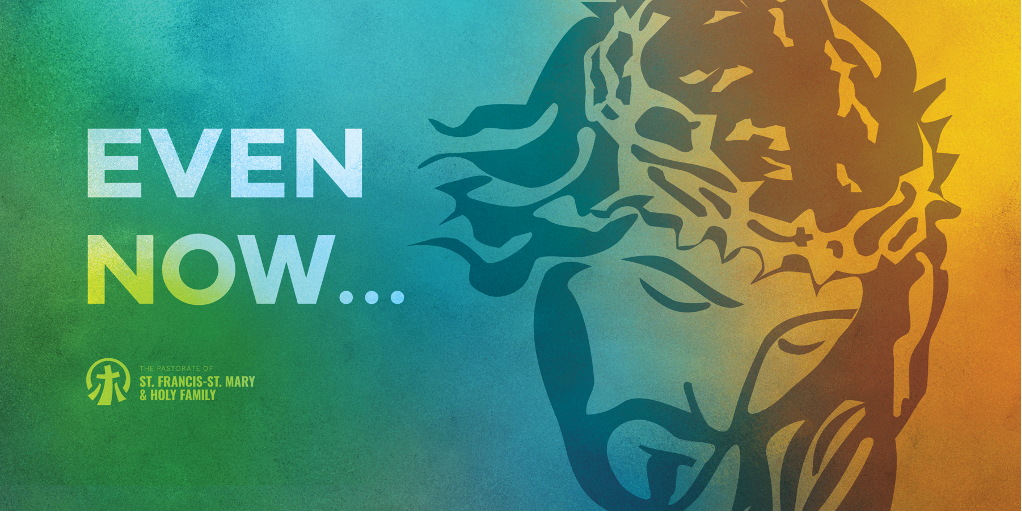
My Dear Friends in Christ,
 We talked on Ash Wednesday about WHY we pray. It is part of the tradition of Lent that Jesus Himself gave to us of prayer and fasting and almsgiving. More than simply telling us to pray, we learned that this season is about renewing our relationship with God, who seeks to be with us, to draw us close, to remind us of who God is and how God works: that EVEN NOW, no matter where we are or what we’ve done, no matter how distant we’ve become or how angry we feel, EVEN NOW, God seeks us out. God seeks us out to build and grow that friendship, recognizing each of us as a beloved daughter or son.
We talked on Ash Wednesday about WHY we pray. It is part of the tradition of Lent that Jesus Himself gave to us of prayer and fasting and almsgiving. More than simply telling us to pray, we learned that this season is about renewing our relationship with God, who seeks to be with us, to draw us close, to remind us of who God is and how God works: that EVEN NOW, no matter where we are or what we’ve done, no matter how distant we’ve become or how angry we feel, EVEN NOW, God seeks us out. God seeks us out to build and grow that friendship, recognizing each of us as a beloved daughter or son.
Then on the First Sunday of Lent, with Jesus being tempted in the desert, we learned that prayer helps us to fight temptation by reminding us of who we are. Satan tempts Jesus most insidiously by trying to get Jesus to doubt; doubt His relationship with our heavenly Father; doubt His ability to fulfill the mission entrusted to him by the Father;  doubt His willingness to suffer all that will come and remain faithful. The only way Jesus can fight these temptations is to maintain and strengthen His relationship with God. Prayer helps us to do that.
doubt His willingness to suffer all that will come and remain faithful. The only way Jesus can fight these temptations is to maintain and strengthen His relationship with God. Prayer helps us to do that.
And then last week, we saw that relationship confirmed in the Transfiguration of Jesus. This is my beloved son. The glory of God, God’s awesome power, God’s mighty hand and  outstretched arm, the brilliance of God’s love all shining palpably through the humanity of Jesus. In this gift, even misunderstood, Peter comes to realize that It is good that we are here. This mountain-top moment when God’s Presence is undeniable is to strengthen Peter and James and John to face those times God seems distant or absent.
outstretched arm, the brilliance of God’s love all shining palpably through the humanity of Jesus. In this gift, even misunderstood, Peter comes to realize that It is good that we are here. This mountain-top moment when God’s Presence is undeniable is to strengthen Peter and James and John to face those times God seems distant or absent.
And now, let’s take a look at what we do in prayer, to pray, and how we pray.
Jesus comes.
Jesus engages.
Jesus forgives.
Jesus teaches.
Jesus sends.
Jesus comes.
It’s out of the way, and, in fact, it’s anathema for any good Jew: Samaria, the town of Sychar, Jacob’s well. You see Jews hated Samaritans (and vice versa!) and had for almost a thousand years. The Kingdom of Israel was originally made up of all the twelve tribes of Israel, each tribe founded by one of the twelve sons of Jacob. The kingdom reached its zenith under King Solomon, the son of King David but split along political lines after that into the northern kingdom, Israel, and the southern kingdom, Judah. The animosity between the Jews (inhabitants of the Judah, the southern kingdom) and Israelites began immediately after the division, as Samaria was the capital city of the northern kingdom. Later, after Israel’s fall to the Assyrians, they began to intermarry with the Assyrians which is why the Jews hated the Samaritans as “dogs,” or “half-breeds.”
 Jesus is on his way home from Judea to Galilee. Since the Jews (good ones at least) avoided Samaria, they would go far out of the way to go around Samaria, bypassing the whole region. Jesus takes the more direct route and passes through Samaria, not because He’s lazy but because, as we’ll see, He has a mission. Even still the trek home was a three day walk in the hot sun. John tells us in the Gospel that it is the sixth hour. If the first hour was at sunset, then the 6th hour was roughly around noon, lunchtime, and the hottest part of the day. Since it’s lunch time, Jesus and the Apostles stop for a break at Jacob’s Well. Jacob’s Well was a popular watering hole (get it?!) and locals came to get their daily supply of water and to see their friends and catch up on the town gossip. The Apostles leave Jesus to go get some food. Unusual that they all go, but Jesus has a plan. At noon, the well was pretty much devoid of activity; most got their water earlier in the day or later in the evening, when it was cooler, avoiding the high heat and the penetrating sun. Thus, Jesus comes to be sitting alone at the well at the sixth hour. But he is not alone for long.
Jesus is on his way home from Judea to Galilee. Since the Jews (good ones at least) avoided Samaria, they would go far out of the way to go around Samaria, bypassing the whole region. Jesus takes the more direct route and passes through Samaria, not because He’s lazy but because, as we’ll see, He has a mission. Even still the trek home was a three day walk in the hot sun. John tells us in the Gospel that it is the sixth hour. If the first hour was at sunset, then the 6th hour was roughly around noon, lunchtime, and the hottest part of the day. Since it’s lunch time, Jesus and the Apostles stop for a break at Jacob’s Well. Jacob’s Well was a popular watering hole (get it?!) and locals came to get their daily supply of water and to see their friends and catch up on the town gossip. The Apostles leave Jesus to go get some food. Unusual that they all go, but Jesus has a plan. At noon, the well was pretty much devoid of activity; most got their water earlier in the day or later in the evening, when it was cooler, avoiding the high heat and the penetrating sun. Thus, Jesus comes to be sitting alone at the well at the sixth hour. But he is not alone for long.
A woman comes to draw water?? Why would she be there at the heat of the day?? To do the backbreaking work of filling a large jug and then carrying it home?? She’s there because she knows that no one else will be there. You see, she’s a woman, strike one in Jesus’s day. She’s a Samaritan; strike two and, as we’ll come to see, she is a great and very public sinner, flouting the rules about marriage and what’s important, the butt of people’s jokes. It’s not surprising, then, that she comes at noon because she knows that no one else will be there. She wants to slink in, get her water, and then slink back out, avoiding the locals and their harsh judgment. Even more devastating is that perhaps, she thinks they are right.
no one else will be there. She wants to slink in, get her water, and then slink back out, avoiding the locals and their harsh judgment. Even more devastating is that perhaps, she thinks they are right.
She must have been upset then, to see Jesus there, foiling her plan. Then, she’s startled, even shocked as Jesus begins to speak to her. Anyone of her strikes would prevent others from engaging with her, let alone all three. But not Jesus. Jesus puts aside social convention, judgment, and prejudice to engage her.
Jesus engages.
“Give me a drink.” – It’s one of my favorite scripture passages (although in context it’s not as funny as a standalone line!). He doesn’t castigate her, ignore her, berate or disdain her. He doesn’t talk theology or esoterica above her reasoning or beyond her situation in life. He doesn’t talk about the weather or ask about her family. He doesn’t talk about the latest movie or asked if she’s read the new bestseller. Jesus cuts through everything else and engages the woman where and as she is. She isn’t ready to discuss the important things; she doesn’t know let alone trust Jesus. He knows this, so He starts with something simple. Whatever the case, Jesus simply asks her to give Him a little bit of what she has in great abundance.
You can imagine her being somewhat torn: angered that her plan for an anonymous strike has been foiled but also a sense of joy that someone is engaging her, perhaps only because he doesn’t know who she is. She leaves both behind and focuses on the question at hand. She answers with what she has learned, both from history and from her own life: “How can you, a Jew, ask me, a Samaritan woman, for a drink?” And so, it begins. From this inauspicious beginning, the dialogue continues, allowing an encounter with Jesus. But, much like the infomercials of the 1980s, Jesus tells her: Wait, there’s more. Jesus is offering much, much more than He’s asking for; Jesus offers her living water that she’ll never thirst again. As it often happens, at least with me, she thinks too small about His offer. She only wants the living water so that she never has to come back to this well again and avoid the people completely. But again, “Wait there’s more!” Jesus wants something more, something so much greater FOR her than anything He is asking FROM her.
 Although somewhat stylized and brief, this back and forth represent that Jesus engages her, puts Himself in relationship with her, continues to answer questions and to draw her closer and more deeply into relationship with Him. He wants her to know Him and to trust Him, to know that He loves her even as she is known by Him. This is not some casual encounter, or some idle banter. Jesus is at work deepening bonds of friendship and love and trust that will allow God to work with her, for her, and then THROUGH her for others. Only when Jesus has established a relationship with, only once He has her trust, only once she knows of His care for her does he delve daintily into what was most likely in the forefront of her mind with Jesus and with anyone else she meets, what is certainly for the local yokels her defining element, her sinfulness.
Although somewhat stylized and brief, this back and forth represent that Jesus engages her, puts Himself in relationship with her, continues to answer questions and to draw her closer and more deeply into relationship with Him. He wants her to know Him and to trust Him, to know that He loves her even as she is known by Him. This is not some casual encounter, or some idle banter. Jesus is at work deepening bonds of friendship and love and trust that will allow God to work with her, for her, and then THROUGH her for others. Only when Jesus has established a relationship with, only once He has her trust, only once she knows of His care for her does he delve daintily into what was most likely in the forefront of her mind with Jesus and with anyone else she meets, what is certainly for the local yokels her defining element, her sinfulness.
Jesus forgives.
Go call your husband. It is only once they are in relationship that Jesus moves forward to what everyone else would have considered front and center: her sinfulness. In the same way that Jesus did not allow social standing, political ideology or historic animosity to stand in his way of reaching this woman, neither, will he allow her sinfulness to stand in his way of his offering and her accepting God’s love. Jesus wants to free her from that sinfulness, free her from those limitations, liberate her from accepting the judgement of others in favor of God’s judgement for her.
Jesus doesn’t want to forgive her only to stop her from sinning. He wants to liberate her from the burden of sin, help her to know the delight God takes in her and help her to become the woman she wants to be. And this is ultimately what Jesus teaches her.
Jesus teaches.
“I am he, the one speaking with you.” Jesus did not come merely to engage her nor merely to forgive her, so that she can move on with her life. Jesus wants something so much greater for her, even greater than she imagines or even thinks possible. Whatever her situation, whatever led her to struggle, whatever her state of mind or heart or life, Jesus comes to her to let her know that God is close, that God wants to be with her, to delight in her, to help her, to strengthen her. Jesus teaches by His Presence and by His words that God loves and cares and has a plan that God comes to us, that we are not alone. Through His searching her out as she seeks to avoid everyone, through His engaging her when no one else would bother, through His challenges for her, through His address of her sins, through His forgiveness, Jesus has taught her how close God is, that to recognize Jesus as the Messiah is to worship in spirit and in truth. To worship in spirit and in truth, truly to recognize Jesus as the Messiah, is a life changing thing, accepting the truth of God’s love for us and allowing God’s Spirit of love to reign in our hearts and in our lives. And this is ultimately why Jesus comes to the woman and what Jesus does for her.
words that God loves and cares and has a plan that God comes to us, that we are not alone. Through His searching her out as she seeks to avoid everyone, through His engaging her when no one else would bother, through His challenges for her, through His address of her sins, through His forgiveness, Jesus has taught her how close God is, that to recognize Jesus as the Messiah is to worship in spirit and in truth. To worship in spirit and in truth, truly to recognize Jesus as the Messiah, is a life changing thing, accepting the truth of God’s love for us and allowing God’s Spirit of love to reign in our hearts and in our lives. And this is ultimately why Jesus comes to the woman and what Jesus does for her.
Jesus sends.
Jesus has come, engaged her, forgave her and taught her also so that she could share God’s love. Immediately following their conversation, the woman leaves her water jug and runs into town to the very people she was avoiding earlier. And she begins to preach. She doesn’t quote scripture, spout theology, expound philosophy, or teach morals. She simply shares her experience and invites the people to do the same. “Come see a man who told me everything I have done.”
You can almost imagine their indignation as she begins to speak to them. Who the heck does she think she is? What right does she have to tell us anything? Rather than avoid it, or hide it, or dance around, the woman begins her testimony with her sinfulness. She hadn’t fooled Jesus or hid anything. Like those townspeople, Jesus knew her and her sinfulness. But his response was not like theirs. She’s not sure what has happened, but she knows that something, everything has changed. She can’t explain it, she can’t define. She can only ask a question “Could he possibly be the Christ?” And those listening, they who know her and have judged her by her sinfulness sense that something is different. Her words, her witness, is so powerful that even despite her being a very poor and disreputable carrier, the message is received, and they go out to encounter Jesus on their own.
And this is what we do when we pray. Prayer is not about getting something, or even getting something out of it. We simply need to offer to Christ a little of what we have, not water but time and energy and attention and effort. And Jesus will do the rest. Concentrate only on the time and effort, the attention and energy, the openness and vulnerability that you offer to God. Prayer is an offering you make to God. Sure, we can ask for what we want, but when we will only accept a particular outcome, we limit God. Remember the woman only wanted water but she got freedom in this life and a shot at eternity. God had much bigger plans for her, bigger than even a lifetime supply of water or indoor plumbing to bring it to her. This is why, when we pray, we need only remember this Gospel and how Jesus does all of the work.
Jesus comes. TO YOU.
 Jesus is seeking you out and wants to come to you. All that you need to do is be available. All you have to do is be available, open, vulnerable. Easy but not necessarily comfortable, Good but not nice. We need to be passive before the Lord, allow space to encounter Christ. Spend time being passive before the Lord. But, if you are anything like me, it is difficult to be passive, and I find myself having to work very hard to set the stage of my mind and heart to be passive.
Jesus is seeking you out and wants to come to you. All that you need to do is be available. All you have to do is be available, open, vulnerable. Easy but not necessarily comfortable, Good but not nice. We need to be passive before the Lord, allow space to encounter Christ. Spend time being passive before the Lord. But, if you are anything like me, it is difficult to be passive, and I find myself having to work very hard to set the stage of my mind and heart to be passive.
Jesus engages. YOU.
Jesus not only comes but engages her, meets her where she is, as she is and then talks to her on her level. Notice that Jesus does not solve her problems or provide her with a reading list. He engages her though, answers her questions, deepens the conversation and allows faith to grow. In fact, some of the answers Jesus gives raises new but more important questions for her: “Could he possibly be the Christ?” In engaging us, as with the woman at the well, Jesus is not castigating us nor, at the other end of the spectrum, simply seeking our comfort or making everything nice. Jesus does not attack, does not judge, does not confront her. The encounter is about inviting us to know and to share God’s love, about leading us to experience that love in the forgiveness of sins and in the joy of God’s mercy. Jesus wants each of us to recognize ourselves as God does, a beloved child in whom God is well pleased. And how does Jesus engage us today, what he did in person with the woman at the well. Jesus engages us through sacred scripture where we hear the words that Jesus used. Jesus engages us through the teachings of the Church that challenge us to recognize in ourselves and one another the dignity of a child of God. Jesus engages us through books and art and science, stirring questions in our minds, feelings in our hearts, calling us to live and reach more deeply. Jesus even engages now through the news, positive or negative, that can help us question what we think and accept for norms and givens.
Jesus teaches. YOU.
Jesus does not teach some dull theology or inscrutable philosophy. Rather Jesus teaches us about Himself, how close God is, how much God loves us and how close God wants us. Jesus teaches us of revelation, of who He is and how God works. And, Jesus teaches us about forgiveness.
Jesus forgives YOUR SINS.
 Jesus did not simply get the woman to stop sinning to make her an upstanding citizen. Jesus wants the same for you, even if you aren’t looking for it or don’t think it’s possible. In grace and with mercy Jesus wants you to know God’s goodness for all, of God’s delight in you. Jesus wants you to be healed and to help you recognize your own worth.
Jesus did not simply get the woman to stop sinning to make her an upstanding citizen. Jesus wants the same for you, even if you aren’t looking for it or don’t think it’s possible. In grace and with mercy Jesus wants you to know God’s goodness for all, of God’s delight in you. Jesus wants you to be healed and to help you recognize your own worth.
Jesus sends YOU.
All other things lead up to the woman’s going back into town. Jesus comes not simply to make good little sheep but people of boldness, joy, excitement, courage, to be someone who is palpably changed, substantially different. Jesus doesn’t want us to quote scripture, spout theology, expound philosophy, or teach morals. God simply asks us to share our experience with Jesus and then invite other people to do the same. “Come see a man who told me everything I have done.” It is God who will give us the right things to say and the ability to be convincing, despite our being an unreliable witness.
Saint Thérèse of Lisieux once called prayer “a surge of the heart, a simple look turned towards heaven…” a cry of recognition and of love embracing both trial and joy. Thérèse was an amazing saint. She died at only 24 but was recognized even in her own day as a saint. She entered the convent at only 17, wanting to be a priest. She never traveled further than a few miles from her home yet wanted to be a missionary. She wanted to go out and do great things for God but was limited by her health. It was through her prayer, her turning over both trial and joy, indeed her whole life to God that she was able to realize the delight God took in her, where she was, as she was. He revealed to her what she called the Little Way, to stand and bloom where you are planted, to see in every task, every duty an opportunity to serve God and to do so joyfully. Only possible but eminently doable with God’s help.
And this is what we pray for Dawn and Jen and Liz in just a moment, that they, too, can meet God, that they, too, can encounter Christ, that they, too, can know forgiveness and not be limited by sin, that they can be sent out as effective preachers of the gospel, announcing their experience of God’s love and forgiveness. In just a minute, we’ll pray for them, asking God to help them remember their sinfulness but, as with the woman, remembering that sinfulness only to offer forgiveness and love. That will come in a sacramental way in the waters of baptism.
Take some time this week, to reflect on our Gospel. Seek the presence of God. 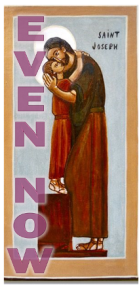 Remember that any time, all time you give to prayer is good, a gift to God. Don’t be stymied by distraction but keep remembering that Jesus comes TO YOU. Jesus seeks to engage YOU. Jesus wants to forgive YOUR SINS. Jesus teaches YOU. Jesus sends YOU OUT to share the good news of YOUR EXPERIENCE of God and God’s love FOR YOU. Be like the woman at the well, courageous and bold, simple and convincing in preaching Jesus Christ and the living water God seeks to give. You won’t be sorry. Rather, concentrate on offering something to God. Even now.
Remember that any time, all time you give to prayer is good, a gift to God. Don’t be stymied by distraction but keep remembering that Jesus comes TO YOU. Jesus seeks to engage YOU. Jesus wants to forgive YOUR SINS. Jesus teaches YOU. Jesus sends YOU OUT to share the good news of YOUR EXPERIENCE of God and God’s love FOR YOU. Be like the woman at the well, courageous and bold, simple and convincing in preaching Jesus Christ and the living water God seeks to give. You won’t be sorry. Rather, concentrate on offering something to God. Even now.
Use what I call the 7/7 rule: Take 7 minutes each day over the next 7 days to pray. Objectively, it’s not a long time and surely you can find it. Spend the first minute telling God where you are, and the last-minute asking God for what you need. But leave the 5 minutes in between for God. Allow God to delight in you, strengthen you. I guarantee you that God will make use of the time you offer if you can focus on your offer rather than the reward. Together, let us pray for one another and for all those who will come to encounter Christ during this Lent. Pray that, through the intercession of Saint Joseph they might be cared for and watched over by the God who loves us and draws us close.
Peace,

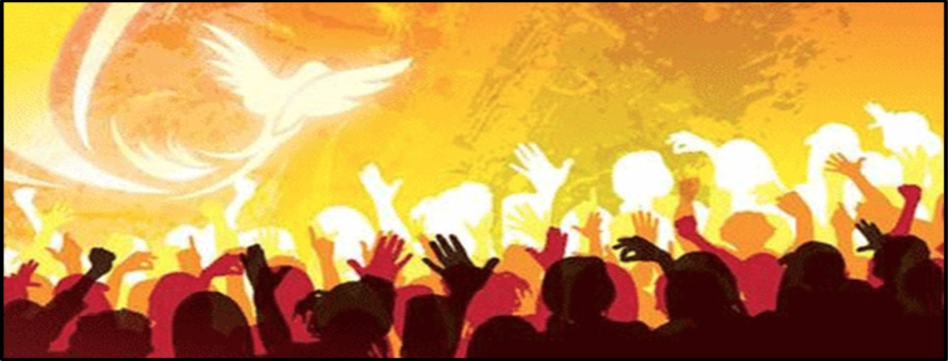
 In May of 1934, Billy Graham’s dad and some local businessmen met as they often did on the Graham’s dairy farm, praying for the spiritual revival of their city and country. One suggested to add a bold new prayer that day, that God would raise up someone from right there in town who would take the Gospel to the ends of the earth. No one save God was thinking of 15-year-old Billy who at that very moment was pitching hay at the mules, daydreaming of being a professional baseball player. God answered that bold prayer in ways beyond all imagining, and has continued to answer it to this day, long after Billy’s death, despite the antics of his kids. “A mystery and wonder of prayer,” Billy Graham reflected, “is that God often waits until someone asks.” Ask boldly, that God answer beyond our imaginings.
In May of 1934, Billy Graham’s dad and some local businessmen met as they often did on the Graham’s dairy farm, praying for the spiritual revival of their city and country. One suggested to add a bold new prayer that day, that God would raise up someone from right there in town who would take the Gospel to the ends of the earth. No one save God was thinking of 15-year-old Billy who at that very moment was pitching hay at the mules, daydreaming of being a professional baseball player. God answered that bold prayer in ways beyond all imagining, and has continued to answer it to this day, long after Billy’s death, despite the antics of his kids. “A mystery and wonder of prayer,” Billy Graham reflected, “is that God often waits until someone asks.” Ask boldly, that God answer beyond our imaginings. God has already done for us. Today, we celebrate that God has given Himself to us: no distance, no separation, no qualifiers. God makes Himself ours, willing to be rejected and ignored, that we might know His ardent and gentle love. God gives the Spirit because He loves me and wants to be close to me. Nothing could be more intimate, and nothing is more powerful. And God’s Spirit reaches out through me that others might know of God’s love and power in their lives. It is no academic exercise but the very heart of the Christian life.
God has already done for us. Today, we celebrate that God has given Himself to us: no distance, no separation, no qualifiers. God makes Himself ours, willing to be rejected and ignored, that we might know His ardent and gentle love. God gives the Spirit because He loves me and wants to be close to me. Nothing could be more intimate, and nothing is more powerful. And God’s Spirit reaches out through me that others might know of God’s love and power in their lives. It is no academic exercise but the very heart of the Christian life.
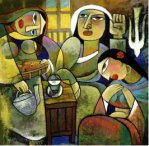

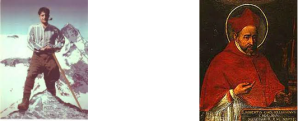

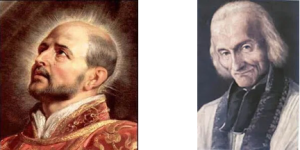

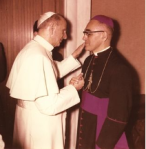


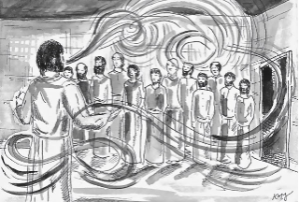 Chrysostum could get downright nasty. None was perfect, but they were open to the Spirit and God used each of them to make known His ardent and gentle love.
Chrysostum could get downright nasty. None was perfect, but they were open to the Spirit and God used each of them to make known His ardent and gentle love.
 share who I am and what I have with Jesus Christ in and though this community? If not, pray, and pray boldly. Peace be with you.
share who I am and what I have with Jesus Christ in and though this community? If not, pray, and pray boldly. Peace be with you.

 Why are you standing there looking at the sky? Try it sometime. Stand outside in a
Why are you standing there looking at the sky? Try it sometime. Stand outside in a  crowded space and look up at the sky for a while. I guarantee you, that, if you do it hard enough and long enough, someone else in that place will follow your lead, even if there is nothing but blue sky to see. Why are you standing there looking up at the sky? In our first reading today the angels chide the disciples of Jesus for standing there with their heads up and their eyes fixed on the sky.
crowded space and look up at the sky for a while. I guarantee you, that, if you do it hard enough and long enough, someone else in that place will follow your lead, even if there is nothing but blue sky to see. Why are you standing there looking up at the sky? In our first reading today the angels chide the disciples of Jesus for standing there with their heads up and their eyes fixed on the sky.  Perhaps it is the same two angels who, just a few weeks ago called them out for looking down at the empty tomb, “Why do you seek the living one among the dead? He is not here but has been raised…”
Perhaps it is the same two angels who, just a few weeks ago called them out for looking down at the empty tomb, “Why do you seek the living one among the dead? He is not here but has been raised…”
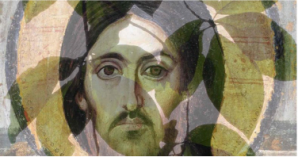 keep the branches connected and nourished, not just with something but with the Vine’s own very essence. The vine literally pours it’s essence into the branch that the branch may become fruitful, producing fruit that will last and produce an abundance of delightful wine.
keep the branches connected and nourished, not just with something but with the Vine’s own very essence. The vine literally pours it’s essence into the branch that the branch may become fruitful, producing fruit that will last and produce an abundance of delightful wine. Safeway, or plan a cocktail party, even by Zoom. But we can meet Jesus…
Safeway, or plan a cocktail party, even by Zoom. But we can meet Jesus… God’s omnipotent power to defeat the Roman soldier and the Temple guard as they came to take Him away when, to take Him into custody on the night before He was crucified. Rather, Jesus sacrificed Himself for them and for us. And here, at the Ascension, with the disciples, Jesus refuses to beguile them with a display of earthly power, or oratory about messiahship or fitting into their patterns. They will find the truth only as they look through their circumstances and, by faith, with the eyes of faith, perceive the hidden realities, the mysteries of God’s love made known, as He did when He was with them on earth.
God’s omnipotent power to defeat the Roman soldier and the Temple guard as they came to take Him away when, to take Him into custody on the night before He was crucified. Rather, Jesus sacrificed Himself for them and for us. And here, at the Ascension, with the disciples, Jesus refuses to beguile them with a display of earthly power, or oratory about messiahship or fitting into their patterns. They will find the truth only as they look through their circumstances and, by faith, with the eyes of faith, perceive the hidden realities, the mysteries of God’s love made known, as He did when He was with them on earth. stay with them and then challenged them to go forth Baptizing in His name. Remember, he called Himself the Good Shepherd, not only taking care of the sheep but willing to die for them. Remember He called Himself the Vine, who sought not only to keep the branches close and connected but filled with very essence of who God is and how God works. Remember, Jesus made them His friends, a daringly intimate relationship that suggest a certain equality between the omniscient, omnipotent, omnipresent Creator and one of the lowly creatures, all in humility to be close to us.
stay with them and then challenged them to go forth Baptizing in His name. Remember, he called Himself the Good Shepherd, not only taking care of the sheep but willing to die for them. Remember He called Himself the Vine, who sought not only to keep the branches close and connected but filled with very essence of who God is and how God works. Remember, Jesus made them His friends, a daringly intimate relationship that suggest a certain equality between the omniscient, omnipotent, omnipresent Creator and one of the lowly creatures, all in humility to be close to us.
 “Jesus is our friend” is not some sappy kindergarten notion but a realistic view of what God wants and a comprehensible way to understand and achieve it. We know what it means to be and to have a true friend. Even in the abstract we know that friendship is comfort, support, guidance, joy, excitement, challenge. Friendship is built up in time spent with the other and all of the hallmarks and requirements of any earthly friendship offer us insights into what God wants. In our message series, Meeting Jesus, we have been examining the images Jesus uses for Himself to understand better what God wants. And what God wants FOR us is a whole lot more than what God wants FROM us. That’s why it is so important not only that we MEET Jesus but also that we come to KNOW Jesus.
“Jesus is our friend” is not some sappy kindergarten notion but a realistic view of what God wants and a comprehensible way to understand and achieve it. We know what it means to be and to have a true friend. Even in the abstract we know that friendship is comfort, support, guidance, joy, excitement, challenge. Friendship is built up in time spent with the other and all of the hallmarks and requirements of any earthly friendship offer us insights into what God wants. In our message series, Meeting Jesus, we have been examining the images Jesus uses for Himself to understand better what God wants. And what God wants FOR us is a whole lot more than what God wants FROM us. That’s why it is so important not only that we MEET Jesus but also that we come to KNOW Jesus. Our gospel today is taken from the Last Supper as recorded by John. Jesus knows He doesn’t have much time. In fact, this is His final encounter with the Apostles before His betrayal, torture and murder. He tells them of their new situation, born of His having chosen and loved them. Jesus loves without limit, laying down his life for them despite the fact that they are still locked in their ignorance, one of them is a betrayer, and another will deny him. With Jesus, their past and even future failures will not be held against them. Jesus doesn’t condemn them; He loves them.
Our gospel today is taken from the Last Supper as recorded by John. Jesus knows He doesn’t have much time. In fact, this is His final encounter with the Apostles before His betrayal, torture and murder. He tells them of their new situation, born of His having chosen and loved them. Jesus loves without limit, laying down his life for them despite the fact that they are still locked in their ignorance, one of them is a betrayer, and another will deny him. With Jesus, their past and even future failures will not be held against them. Jesus doesn’t condemn them; He loves them. Jesus has chosen them out of love, friended them (and not only on Facebook), raised them to the dignity of friends and now commissions them, the Father giving all they need. Jesus concludes with a restatement of the commandment essential for their new status. The quality of their love will mark them out as disciples, indeed as friends of Jesus.
Jesus has chosen them out of love, friended them (and not only on Facebook), raised them to the dignity of friends and now commissions them, the Father giving all they need. Jesus concludes with a restatement of the commandment essential for their new status. The quality of their love will mark them out as disciples, indeed as friends of Jesus. reprisal. I can be awkward, don’t need to pretend I have all the answers. I can lack confidence. I don’t need makeup. And I’m still ok. My friend doesn’t care about any of that. My friend is a comforting place, a safe harbor that I can sail into whenever I need supplies of comfort, consolation, guidance, support. I can be open, honest, comfortable, vulnerable. I even want to be vulnerable with my friend.
reprisal. I can be awkward, don’t need to pretend I have all the answers. I can lack confidence. I don’t need makeup. And I’m still ok. My friend doesn’t care about any of that. My friend is a comforting place, a safe harbor that I can sail into whenever I need supplies of comfort, consolation, guidance, support. I can be open, honest, comfortable, vulnerable. I even want to be vulnerable with my friend. looking out for me, that I am not alone. I can be joyful with my friend, even in sorrow, struggle and challenge. My friend increases my joy.
looking out for me, that I am not alone. I can be joyful with my friend, even in sorrow, struggle and challenge. My friend increases my joy. The love Jesus has for us and the friendship Jesus offers is no less real than what He gave to those first disciples. Jesus gives us a new situation as He did them, based only on the command to love others as He loved us. It’s not because we’re worthy or because we deserve it or even because we might be good at it. It’s because He loved us, because He chose us, because He wants to be my friend.
The love Jesus has for us and the friendship Jesus offers is no less real than what He gave to those first disciples. Jesus gives us a new situation as He did them, based only on the command to love others as He loved us. It’s not because we’re worthy or because we deserve it or even because we might be good at it. It’s because He loved us, because He chose us, because He wants to be my friend. practical inventiveness, the perseverance to focus on a problem and the wealth to finance it all. More simply, Dr. Bruce Banner has only rage against evil. All that these require is a transformation and these gifts that are hidden or latent or undeveloped come to the fore. For some it is a suit of armor, either literal or figurative. For others, a shedding of meekness and timidity and fear.
practical inventiveness, the perseverance to focus on a problem and the wealth to finance it all. More simply, Dr. Bruce Banner has only rage against evil. All that these require is a transformation and these gifts that are hidden or latent or undeveloped come to the fore. For some it is a suit of armor, either literal or figurative. For others, a shedding of meekness and timidity and fear.
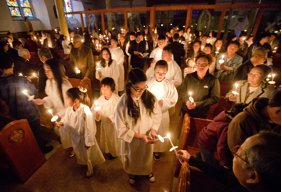 4. Celebrate in public worship. Who you meet and what you learn. And lastly…
4. Celebrate in public worship. Who you meet and what you learn. And lastly…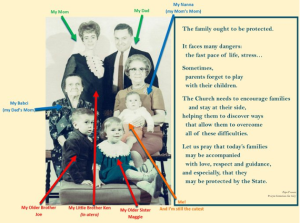 A special shout out to our Moms on this Mother’s Day. Moms are all about vulnerability, generosity, and joy. The older I get, the more I learn from my Mom (even though she went home to the Lord in 2006). I learn from her unconditional love, her kindness, her generosity, her patience (needed much more for my sister and brothers than for her “perfect little Robbie!”). A truly gentle soul, but if someone even thought something bad about her children (or, more strongly about her GRANDchildren) she became a lioness, ready to shred to pieces anyone who would hurt or even malign her children! I learn also as I watch our mothers of all ages here in the pastorate, caring for, protecting, providing for their children. My mother, our mothers, are for me an image of God. Certainly, I do not hesitate to call God “Father,” but I also see God as maternal, caring, tender, gentle. Not that these aren’t also traits of a good father but, in my family, were much more characteristic of my mother.
A special shout out to our Moms on this Mother’s Day. Moms are all about vulnerability, generosity, and joy. The older I get, the more I learn from my Mom (even though she went home to the Lord in 2006). I learn from her unconditional love, her kindness, her generosity, her patience (needed much more for my sister and brothers than for her “perfect little Robbie!”). A truly gentle soul, but if someone even thought something bad about her children (or, more strongly about her GRANDchildren) she became a lioness, ready to shred to pieces anyone who would hurt or even malign her children! I learn also as I watch our mothers of all ages here in the pastorate, caring for, protecting, providing for their children. My mother, our mothers, are for me an image of God. Certainly, I do not hesitate to call God “Father,” but I also see God as maternal, caring, tender, gentle. Not that these aren’t also traits of a good father but, in my family, were much more characteristic of my mother.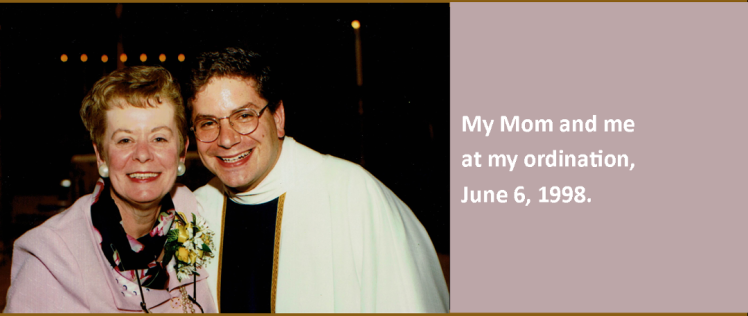 home to the Lord, then pray for her. Pray that she rest in Christ. Pray with her, asking her to continue with you and for you with the help she gave you on earth. Our Moms not only give us life but are one of the most profound ways we can meet Jesus Christ.
home to the Lord, then pray for her. Pray that she rest in Christ. Pray with her, asking her to continue with you and for you with the help she gave you on earth. Our Moms not only give us life but are one of the most profound ways we can meet Jesus Christ. Entitled “The Scream,” it depicts an ambiguous figure in agony, mouth agape in horror, hands held up to the face, a red sky swirling about. In 2012, it took only 12 nail-biting minutes and five eager bidders for Sotheby’s Auction House to sell. Bidders, in the room and connected by phone could be heard speaking several different languages as the $40 million starting price shot quickly up the scale. Gasps could be heard as the bidding climbed higher and higher, until a pause at $99 million, which prompted the auctioneer, to smile, “I have all the time in the world.” When $100 million was bid, the audience began to applaud. With the crack of the closing hammer, the final price, with buyer’s premium, was $119.9 million dollars, making it at the time world’s most expensive work of art sold at auction. (Now, only nine years later, this doesn’t even make the top 10!) A tangible reminder of how and what we value.
Entitled “The Scream,” it depicts an ambiguous figure in agony, mouth agape in horror, hands held up to the face, a red sky swirling about. In 2012, it took only 12 nail-biting minutes and five eager bidders for Sotheby’s Auction House to sell. Bidders, in the room and connected by phone could be heard speaking several different languages as the $40 million starting price shot quickly up the scale. Gasps could be heard as the bidding climbed higher and higher, until a pause at $99 million, which prompted the auctioneer, to smile, “I have all the time in the world.” When $100 million was bid, the audience began to applaud. With the crack of the closing hammer, the final price, with buyer’s premium, was $119.9 million dollars, making it at the time world’s most expensive work of art sold at auction. (Now, only nine years later, this doesn’t even make the top 10!) A tangible reminder of how and what we value. admit that I wasn’t all that impressed with the portfolio that emerged. I spend less time in prayer than I do watching television. I spend less time praising someone and extolling virtue than critiquing even the smallest problem or infraction. I spend more time trying to impress others than working on being the disciple God calls me to be. I spend more time being hurt and alone and angry than I spend reaching out to share with others the Good News I have received. Not very impressive for any Christian, let alone one called to lead others. It was quite a wake-up call.
admit that I wasn’t all that impressed with the portfolio that emerged. I spend less time in prayer than I do watching television. I spend less time praising someone and extolling virtue than critiquing even the smallest problem or infraction. I spend more time trying to impress others than working on being the disciple God calls me to be. I spend more time being hurt and alone and angry than I spend reaching out to share with others the Good News I have received. Not very impressive for any Christian, let alone one called to lead others. It was quite a wake-up call. Again, these are only the basics of being a disciple of Jesus, merely the minimum due, the bottom line and I don’t have enough to pay the bill. It’s a startling realization, a splash of cold water in your face, the blaring alarm of a true wakeup call (like those letters from American Express: Mr. Jaskot, we would like to remind you that American Express is a charge card not a credit card. Please pay your balance in full.) Even as I started to get overwhelmed, I also I came to realize something very important. The challenge isn’t the amount of what I give or do or know or am. God doesn’t care about the amount. After all, it’s easy to pay $120 million for a painting if you’re a billionaire. But I’m not. In fact, I don’t even have $120 million… for a painting or anything else. And I certainly don’t have 120,000,000 minutes which turns out to be
Again, these are only the basics of being a disciple of Jesus, merely the minimum due, the bottom line and I don’t have enough to pay the bill. It’s a startling realization, a splash of cold water in your face, the blaring alarm of a true wakeup call (like those letters from American Express: Mr. Jaskot, we would like to remind you that American Express is a charge card not a credit card. Please pay your balance in full.) Even as I started to get overwhelmed, I also I came to realize something very important. The challenge isn’t the amount of what I give or do or know or am. God doesn’t care about the amount. After all, it’s easy to pay $120 million for a painting if you’re a billionaire. But I’m not. In fact, I don’t even have $120 million… for a painting or anything else. And I certainly don’t have 120,000,000 minutes which turns out to be about 228 years. No matter how good the science of cryogenics becomes, I can’t imagine that I’ll be around that long. Again, though, the challenge is not what I have but what do I do with what I have, not what I can’t do but what I can. Further, how do I value what I have? How do I show that value by what I do and what I give?
about 228 years. No matter how good the science of cryogenics becomes, I can’t imagine that I’ll be around that long. Again, though, the challenge is not what I have but what do I do with what I have, not what I can’t do but what I can. Further, how do I value what I have? How do I show that value by what I do and what I give? wanted him to eradicate those heretics claiming Jesus is Lord and changing his beloved Judaism. Then Saul meets Jesus who literally knocks him off his high horse. What Paul knew, better to say thought he knew, was not, in fact, true, let alone what God wanted. Paul had to leave behind what he knew, move outside his comfort zone, and strip the veneer of his pride. Then, alone, afraid, and timid, Paul had to be led by the hand to meet Jesus, to see how Jesus would transform him and use him for the good of God’s people and the Church.
wanted him to eradicate those heretics claiming Jesus is Lord and changing his beloved Judaism. Then Saul meets Jesus who literally knocks him off his high horse. What Paul knew, better to say thought he knew, was not, in fact, true, let alone what God wanted. Paul had to leave behind what he knew, move outside his comfort zone, and strip the veneer of his pride. Then, alone, afraid, and timid, Paul had to be led by the hand to meet Jesus, to see how Jesus would transform him and use him for the good of God’s people and the Church. book of Genesis (15:1) and last in Revelation (22:16). Here in the Gospel of John, Jesus often uses this divine formula. In these important self identifying references, Jesus uses the personal pronoun “I” which would not be necessary in the grammar of the day.
book of Genesis (15:1) and last in Revelation (22:16). Here in the Gospel of John, Jesus often uses this divine formula. In these important self identifying references, Jesus uses the personal pronoun “I” which would not be necessary in the grammar of the day. Whoever remains in me and I in him will bear much fruit. This is a relatively simple declarative sentence. To remain in Jesus, to allow Jesus to remain in us, bears fruit. PERIOD. Now, the “fruit” we are called to bear is not some esoteric theory, not some theological proposition. Remember the image. I am the vine and you are the branches. What is the fruit of the vine? Grapes! What are grapes used for? Wine. We are called to be wine for others.
Whoever remains in me and I in him will bear much fruit. This is a relatively simple declarative sentence. To remain in Jesus, to allow Jesus to remain in us, bears fruit. PERIOD. Now, the “fruit” we are called to bear is not some esoteric theory, not some theological proposition. Remember the image. I am the vine and you are the branches. What is the fruit of the vine? Grapes! What are grapes used for? Wine. We are called to be wine for others.  it’s not the branch who determines what the fruit is or how much will be borne. No, our call is to remain in Jesus and to allow Him to remain in us. Everything else is up to God.
it’s not the branch who determines what the fruit is or how much will be borne. No, our call is to remain in Jesus and to allow Him to remain in us. Everything else is up to God. Notice the paradox: we can only remain connected to the vine, we can only receive from the vine when we give of ourselves. And it is only then, that God can bear fruit in and through me. So simple to understand, yet so difficult to mete out those minutes in the face of routine or, worse yet, problems that arise to interrupt routine.
Notice the paradox: we can only remain connected to the vine, we can only receive from the vine when we give of ourselves. And it is only then, that God can bear fruit in and through me. So simple to understand, yet so difficult to mete out those minutes in the face of routine or, worse yet, problems that arise to interrupt routine. God gave me the wake-up call and I am passing it along to you. As disciples, whether pastor or not, we cannot remain complacent. “Good enough” is not enough and we’ll have to answer for hitting the snooze button and rolling over to ignore the wake-up call. As I said last week, there is no other way to meet Jesus than to allow God to transform us, each one of us. To surrender myself in these very simple ways is the only way I can meet Jesus. In that meeting, even if we don’t realize it, we have been blessed by so many graces and gifts. What’s the value of your relationship with Jesus and how do you show that value? Live that value? What needs to be pruned from your heart or life to allow God to grow stronger? How will you sacrifice your time to remain in Jesus? What fruits will God bring from that? We may not have $120 million to offer but what will we do with what we’ve been given? Let’s make the best of it. I am the vine and you are the branches.
God gave me the wake-up call and I am passing it along to you. As disciples, whether pastor or not, we cannot remain complacent. “Good enough” is not enough and we’ll have to answer for hitting the snooze button and rolling over to ignore the wake-up call. As I said last week, there is no other way to meet Jesus than to allow God to transform us, each one of us. To surrender myself in these very simple ways is the only way I can meet Jesus. In that meeting, even if we don’t realize it, we have been blessed by so many graces and gifts. What’s the value of your relationship with Jesus and how do you show that value? Live that value? What needs to be pruned from your heart or life to allow God to grow stronger? How will you sacrifice your time to remain in Jesus? What fruits will God bring from that? We may not have $120 million to offer but what will we do with what we’ve been given? Let’s make the best of it. I am the vine and you are the branches.
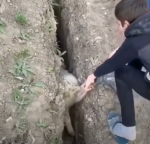
 Along with that, sheep are notoriously dumb animals. They lack any true independence and require help for even the most basic of things, especially over the long run. For example, left to their own devices in a field of grass, the sheep will continue to overeat until the grass is decimated. Then, eventually the sheep will starve because they do not have the capability to understand that there is nothing left to eat and move to another field, even close by, to get food.
Along with that, sheep are notoriously dumb animals. They lack any true independence and require help for even the most basic of things, especially over the long run. For example, left to their own devices in a field of grass, the sheep will continue to overeat until the grass is decimated. Then, eventually the sheep will starve because they do not have the capability to understand that there is nothing left to eat and move to another field, even close by, to get food. Something more was nagging at me, though. I couldn’t escape the realization that I am more like the sheep, in that video and otherwise, than I realized or like to admit (let alone care to mention!). I may not be as dumb as a sheep but there are so many times I’m not as smart as I think I am or as I need to be. So often, I find myself in a tight space, a space created by my own stupidity or, more often, my carelessness, my hardheartedness, my unwillingness to listen, my refusal to be humble or admit when I’m wrong.
Something more was nagging at me, though. I couldn’t escape the realization that I am more like the sheep, in that video and otherwise, than I realized or like to admit (let alone care to mention!). I may not be as dumb as a sheep but there are so many times I’m not as smart as I think I am or as I need to be. So often, I find myself in a tight space, a space created by my own stupidity or, more often, my carelessness, my hardheartedness, my unwillingness to listen, my refusal to be humble or admit when I’m wrong. too comfortable and just calling “it.” And God tugs and yanks and pulls me free and then I go and jump right back into it, that same space or another one just down the road. Yes, I am far more like that sheep than I care to admit.
too comfortable and just calling “it.” And God tugs and yanks and pulls me free and then I go and jump right back into it, that same space or another one just down the road. Yes, I am far more like that sheep than I care to admit. simplify what we need to do, boils what we need to do down to one thing: we need to learn His voice. Jesus wants us to understand how close God seeks to be, how involved God can be in our lives if we allow such involvement, how much God loves us and continues to look out for us – even when it’s only been about 2 minutes since God pulled us out from the last ditch. Jesus wants us to know that God is not distant nor reserved only for the big things in life, the major hurdles or liminal challenges. When we train ourselves to learn and listen for and hear the voice of our Good Shepherd, we can experience the love and concern of God for us, in the most basic of ways and in the most mundane elements of our lives.
simplify what we need to do, boils what we need to do down to one thing: we need to learn His voice. Jesus wants us to understand how close God seeks to be, how involved God can be in our lives if we allow such involvement, how much God loves us and continues to look out for us – even when it’s only been about 2 minutes since God pulled us out from the last ditch. Jesus wants us to know that God is not distant nor reserved only for the big things in life, the major hurdles or liminal challenges. When we train ourselves to learn and listen for and hear the voice of our Good Shepherd, we can experience the love and concern of God for us, in the most basic of ways and in the most mundane elements of our lives. and know and follow His voice. Let me list them for you. Not one of these can be ignored if we truly want to hear and know His voice.
and know and follow His voice. Let me list them for you. Not one of these can be ignored if we truly want to hear and know His voice.
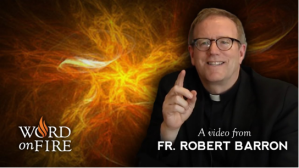 particular person or group offering only part of the message.
particular person or group offering only part of the message. I love watching them come to the sacrament of Reconciliation for the first time, some so scared they can barely speak or walk. But as we go through the sacrament,
I love watching them come to the sacrament of Reconciliation for the first time, some so scared they can barely speak or walk. But as we go through the sacrament,  many challenges of racism, authority, brutality and violence. I was struck by the number of police officers who rallied around the decision and calls for study, investigation and reform. I was struck by the need to pray for police officers who have been tarred and painted with the same brush. I feel a certain kinship with them because of the analogous situation that happened to priests.
many challenges of racism, authority, brutality and violence. I was struck by the number of police officers who rallied around the decision and calls for study, investigation and reform. I was struck by the need to pray for police officers who have been tarred and painted with the same brush. I feel a certain kinship with them because of the analogous situation that happened to priests. Yes, there is certainly a great deal to preach about and to challenge and to console and to share. But I cannot do any of that, if I am a sheep led astray by another’s voice, or by my own comfort, principles or safety. I cannot do that only from the grazing ground of even my own soap box, my opinion or way of seeing the world and the other. I can only truly do that if I am Christ’s sheep, if I know and hear and follow HIS voice, if I allow Christ to guide me and use me as part of his fold, to be responsible for and with the other sheep, not because I have an axe to grind, a problem to solve, a challenge to face, a roadblock to get around or a hurdle to overcome. No. I can only truly care, serve and advocate for others if I understand them as a fellow sheep and a valued part of the herd. As part of the herd, we are called, no less than those early disciples to go out and share this Good News.
Yes, there is certainly a great deal to preach about and to challenge and to console and to share. But I cannot do any of that, if I am a sheep led astray by another’s voice, or by my own comfort, principles or safety. I cannot do that only from the grazing ground of even my own soap box, my opinion or way of seeing the world and the other. I can only truly do that if I am Christ’s sheep, if I know and hear and follow HIS voice, if I allow Christ to guide me and use me as part of his fold, to be responsible for and with the other sheep, not because I have an axe to grind, a problem to solve, a challenge to face, a roadblock to get around or a hurdle to overcome. No. I can only truly care, serve and advocate for others if I understand them as a fellow sheep and a valued part of the herd. As part of the herd, we are called, no less than those early disciples to go out and share this Good News. It’s why the Church in the United States focused on this Sunday as vocation Sunday, calling to pray for and with our young people and their families that they may know and be open to God and the delight God takes in them and the plans God has for them. Please pray for our seminarians and for the work and ministry of Father Steven Roth, our Vocation Director who was so very generous in coming out to celebrate Mass for us when I was away. It’s also the perfect time to announce that the Archbishop has honored us by assigning Michael Moore, a seminarian for the Archdiocese studying at Pope Saint John Paul II Seminary in Washington, D.C. Michael is in the college program and is finishing up his junior year at the Catholic University of America. Michael will be with us only for about 6 – 8 weeks this summer to soak in parish and pastorate life. It will be a blessing to have him in the parish and at the rectory. More to come!
It’s why the Church in the United States focused on this Sunday as vocation Sunday, calling to pray for and with our young people and their families that they may know and be open to God and the delight God takes in them and the plans God has for them. Please pray for our seminarians and for the work and ministry of Father Steven Roth, our Vocation Director who was so very generous in coming out to celebrate Mass for us when I was away. It’s also the perfect time to announce that the Archbishop has honored us by assigning Michael Moore, a seminarian for the Archdiocese studying at Pope Saint John Paul II Seminary in Washington, D.C. Michael is in the college program and is finishing up his junior year at the Catholic University of America. Michael will be with us only for about 6 – 8 weeks this summer to soak in parish and pastorate life. It will be a blessing to have him in the parish and at the rectory. More to come! One additional thought about this gospel and Good Shepherd Sunday. Jesus makes clear in this gospel that ALL sheep are his. A shepherd had his given fold, and the sheep were branded as being part of that fold. We were branded in Baptism as belonging to God’s fold, participating in the Death and Resurrection of Jesus, sharing in the Mission to bring the love of God. Jesus references this expressly as He speaks about “mine” and His willingness to lay down His life. But Jesus also goes on to express that those who are not of the fold, who are not branded, who would not necessarily consider themselves as belonging, are still members of His flock. We are a nation and a world struggling with the pandemic, with vitriol and bitterness marking so much of our society, with the scourges of poverty, racism, violence, with the lack of understanding of respect for the other even and especially the weakest and most vulnerable: the unborn child, the prisoner on death row, the sick and the elderly, the immigrant.
One additional thought about this gospel and Good Shepherd Sunday. Jesus makes clear in this gospel that ALL sheep are his. A shepherd had his given fold, and the sheep were branded as being part of that fold. We were branded in Baptism as belonging to God’s fold, participating in the Death and Resurrection of Jesus, sharing in the Mission to bring the love of God. Jesus references this expressly as He speaks about “mine” and His willingness to lay down His life. But Jesus also goes on to express that those who are not of the fold, who are not branded, who would not necessarily consider themselves as belonging, are still members of His flock. We are a nation and a world struggling with the pandemic, with vitriol and bitterness marking so much of our society, with the scourges of poverty, racism, violence, with the lack of understanding of respect for the other even and especially the weakest and most vulnerable: the unborn child, the prisoner on death row, the sick and the elderly, the immigrant.
 Use what I call the 7/7 rule: Take 7 minutes each day over the next 7 days to pray. Objectively, it’s not a long time and surely you can find it. Spend the first minute telling God where you are, and the last minute asking God for what you need. But leave the 5 minutes in between for God. Allow God to delight in you and strengthen you. I guarantee you that God will make use of the time you offer if you can focus on your offer rather than the reward. Together, let us pray for one another and for all those who will come to encounter Christ during this Lent. Pray that through the intercession of Saint Joseph they might be cared for and watched over by the God who loves us and draws us close.
Use what I call the 7/7 rule: Take 7 minutes each day over the next 7 days to pray. Objectively, it’s not a long time and surely you can find it. Spend the first minute telling God where you are, and the last minute asking God for what you need. But leave the 5 minutes in between for God. Allow God to delight in you and strengthen you. I guarantee you that God will make use of the time you offer if you can focus on your offer rather than the reward. Together, let us pray for one another and for all those who will come to encounter Christ during this Lent. Pray that through the intercession of Saint Joseph they might be cared for and watched over by the God who loves us and draws us close. Every time I hear the story of Lazarus being raised from the dead, I think of Martha stomping out to meet Jesus. She’s hurt, she’s angry, she’s grieving, she feels the separation that comes in death, the death that took her brother from her. Jesus was their very good friend and would visit them, share their hospitality, teach them and speak to them of God’s love. As soon as Lazarus got sick, they had sent word to Jesus, fully expecting I am sure, that Jesus would at the very least come and spend time with Lazarus if not work one of the miracles He had so easily worked in other places. Nope, he hadn’t come even though he was in the next town over. And now Martha has received word that Jesus and His Apostles are coming, coming only NOW that Lazarus is dead and has been dead for four days.
Every time I hear the story of Lazarus being raised from the dead, I think of Martha stomping out to meet Jesus. She’s hurt, she’s angry, she’s grieving, she feels the separation that comes in death, the death that took her brother from her. Jesus was their very good friend and would visit them, share their hospitality, teach them and speak to them of God’s love. As soon as Lazarus got sick, they had sent word to Jesus, fully expecting I am sure, that Jesus would at the very least come and spend time with Lazarus if not work one of the miracles He had so easily worked in other places. Nope, he hadn’t come even though he was in the next town over. And now Martha has received word that Jesus and His Apostles are coming, coming only NOW that Lazarus is dead and has been dead for four days. the feet of Jesus and soaked in all that He was offering. She even cried out, “Jesus, tell her to help me!”
the feet of Jesus and soaked in all that He was offering. She even cried out, “Jesus, tell her to help me!” on being present to God and, just as importantly, allowing God to be present to her. Yes, it must have stung, especially in the presence of her sister. But Martha did learn her lesson and learned it well.
on being present to God and, just as importantly, allowing God to be present to her. Yes, it must have stung, especially in the presence of her sister. But Martha did learn her lesson and learned it well. active in making sure that their guests were greeted properly, made to feel at home, and given something to eat or drink. When Mary hears, she remains there in the house doing what she was before. But Martha having learned her lesson sets out to get close to Jesus. Jesus had told her to come, close, to remain close, to allow nothing to distract her nor let anything be a barrier for her. And so Martha storms out of the house to meet Jesus. I can almost hear the Imperial March that was played whenever Darth Vader came on the scene in the Star Wars movies. Even knowing that it’s only a piece of music from a movie soundtrack, that song evokes in me more than a modicum of fear just like the music from Jaws when the shark is near.
active in making sure that their guests were greeted properly, made to feel at home, and given something to eat or drink. When Mary hears, she remains there in the house doing what she was before. But Martha having learned her lesson sets out to get close to Jesus. Jesus had told her to come, close, to remain close, to allow nothing to distract her nor let anything be a barrier for her. And so Martha storms out of the house to meet Jesus. I can almost hear the Imperial March that was played whenever Darth Vader came on the scene in the Star Wars movies. Even knowing that it’s only a piece of music from a movie soundtrack, that song evokes in me more than a modicum of fear just like the music from Jaws when the shark is near.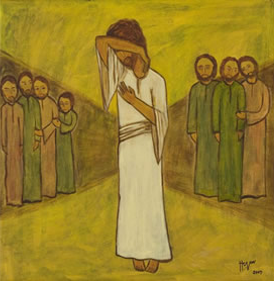 Jesus goes beyond simply helping Martha to come to a deeper understanding of who God is and how God works. It’s only after Martha has come to her deeper faith, Jesus takes her and Mary to the tomb of Lazarus. Here is where Jesus weeps, where he is overwhelmed by the awesome power of death. And Jesus brings all of this to His Heavenly Father, to our Heavenly Father. Jesus cries out over the despair and loss of death, cries out over the chasm that separates earth from heaven, “Father, I thank you for hearing me. I know that you always hear me; but because of the crowd here I have said this, that they may believe that you have sent me.”
Jesus goes beyond simply helping Martha to come to a deeper understanding of who God is and how God works. It’s only after Martha has come to her deeper faith, Jesus takes her and Mary to the tomb of Lazarus. Here is where Jesus weeps, where he is overwhelmed by the awesome power of death. And Jesus brings all of this to His Heavenly Father, to our Heavenly Father. Jesus cries out over the despair and loss of death, cries out over the chasm that separates earth from heaven, “Father, I thank you for hearing me. I know that you always hear me; but because of the crowd here I have said this, that they may believe that you have sent me.”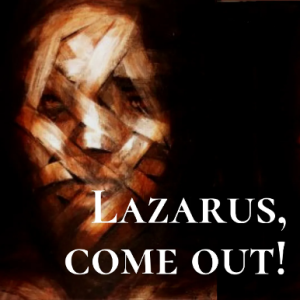 desperation but in love and trust. “Lazarus, come out!”
desperation but in love and trust. “Lazarus, come out!” Use what I call the 7/7 rule: Take 7 minutes each day over the next 7 days to pray. Objectively, it’s not a long time and surely you can find it. Spend the first minute telling God where you are, and the last minute asking God for what you need. But leave the 5 minutes in between for God. Allow God to delight in you and strengthen you. I guarantee you that God will make use of the time you offer if you can focus on your offer rather than the reward. Together, let us pray for one another and for all those who will come to encounter Christ during this Lent. Pray that through the intercession of Saint Joseph they might be cared for and watched over by the God who loves us and draws us close.
Use what I call the 7/7 rule: Take 7 minutes each day over the next 7 days to pray. Objectively, it’s not a long time and surely you can find it. Spend the first minute telling God where you are, and the last minute asking God for what you need. But leave the 5 minutes in between for God. Allow God to delight in you and strengthen you. I guarantee you that God will make use of the time you offer if you can focus on your offer rather than the reward. Together, let us pray for one another and for all those who will come to encounter Christ during this Lent. Pray that through the intercession of Saint Joseph they might be cared for and watched over by the God who loves us and draws us close.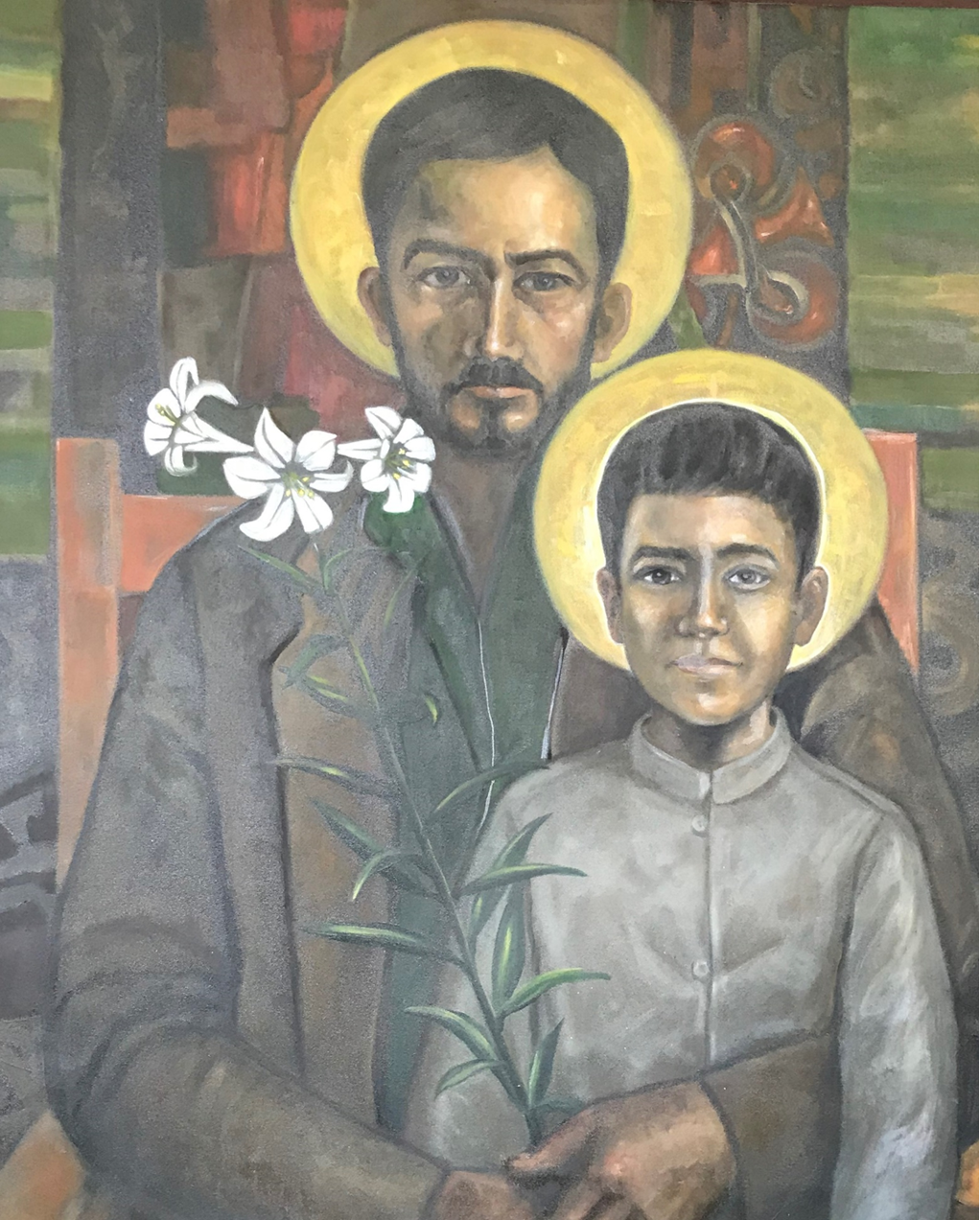
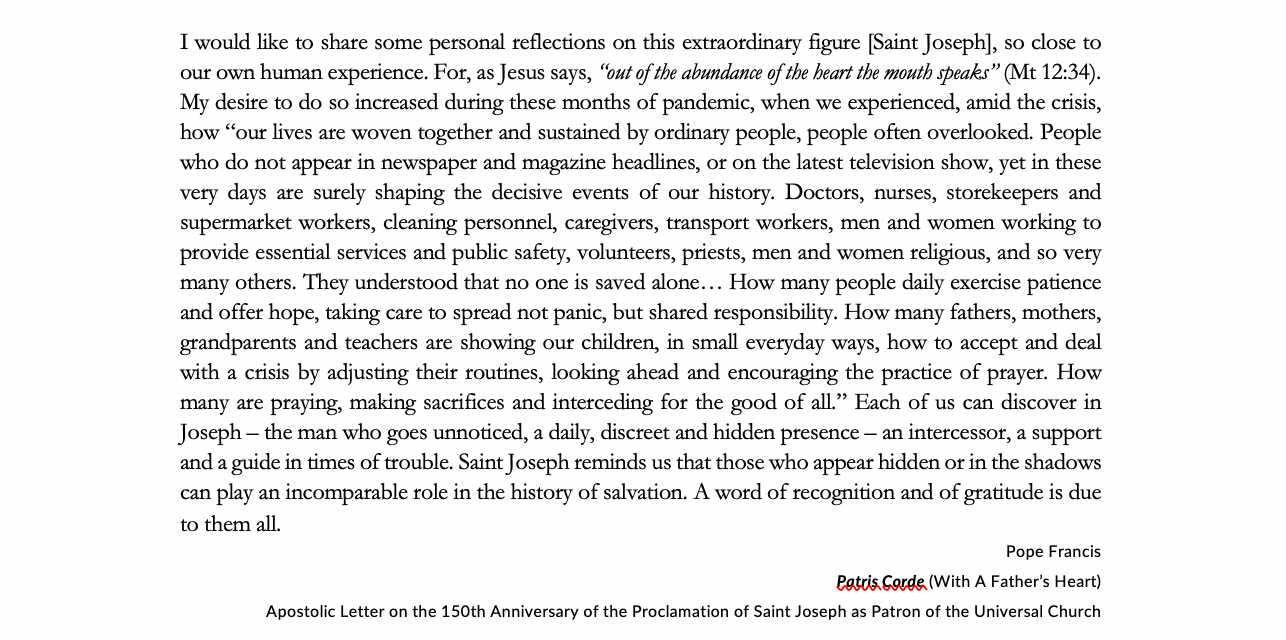
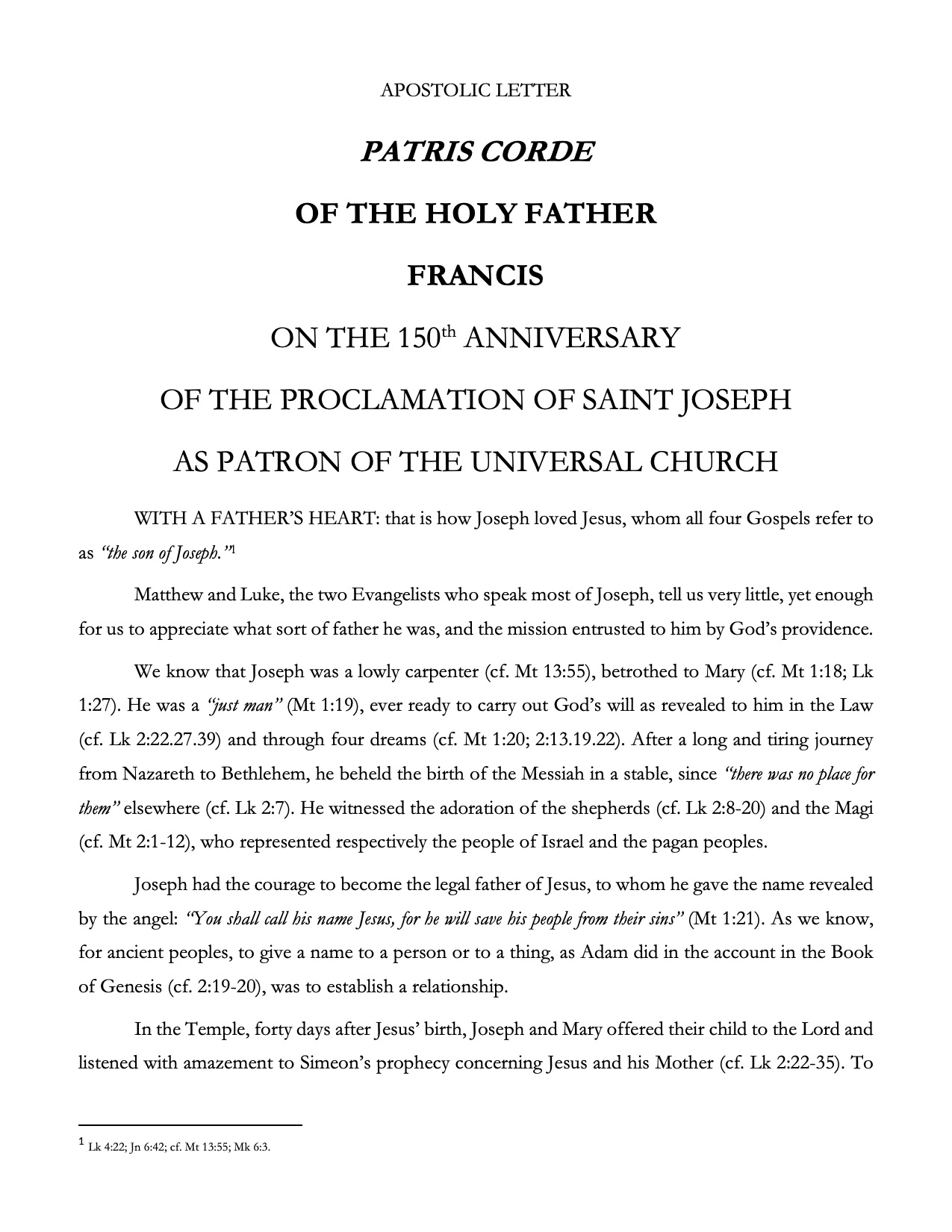
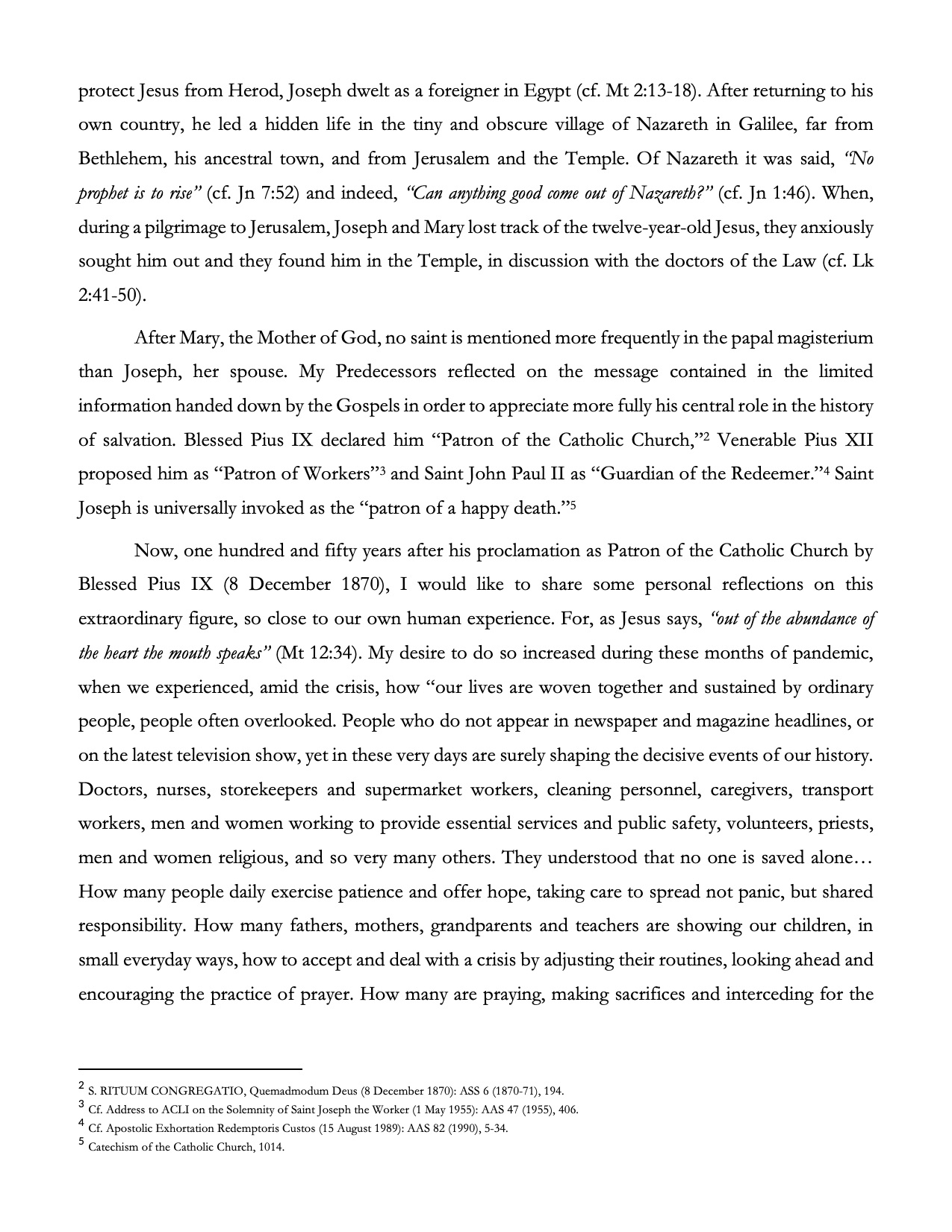
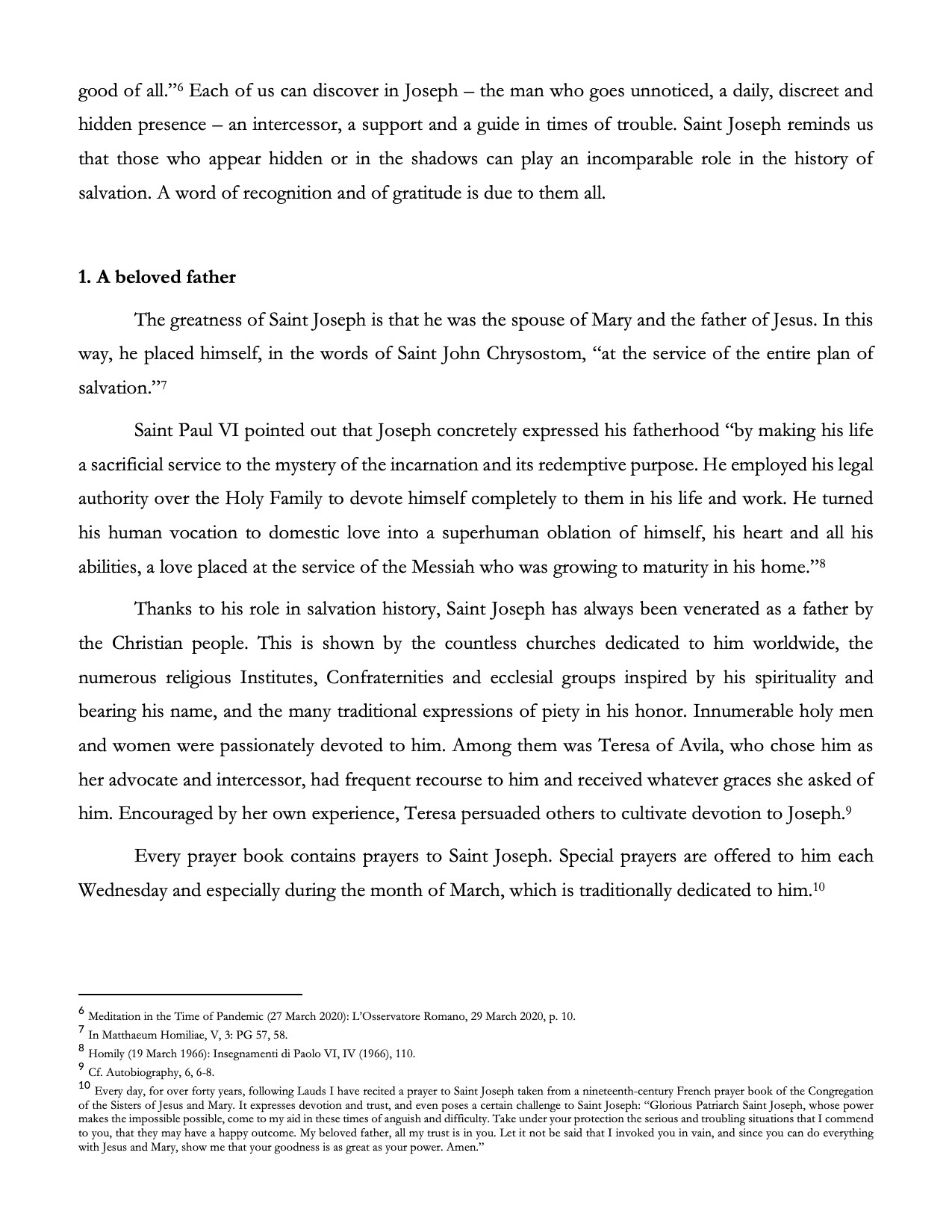





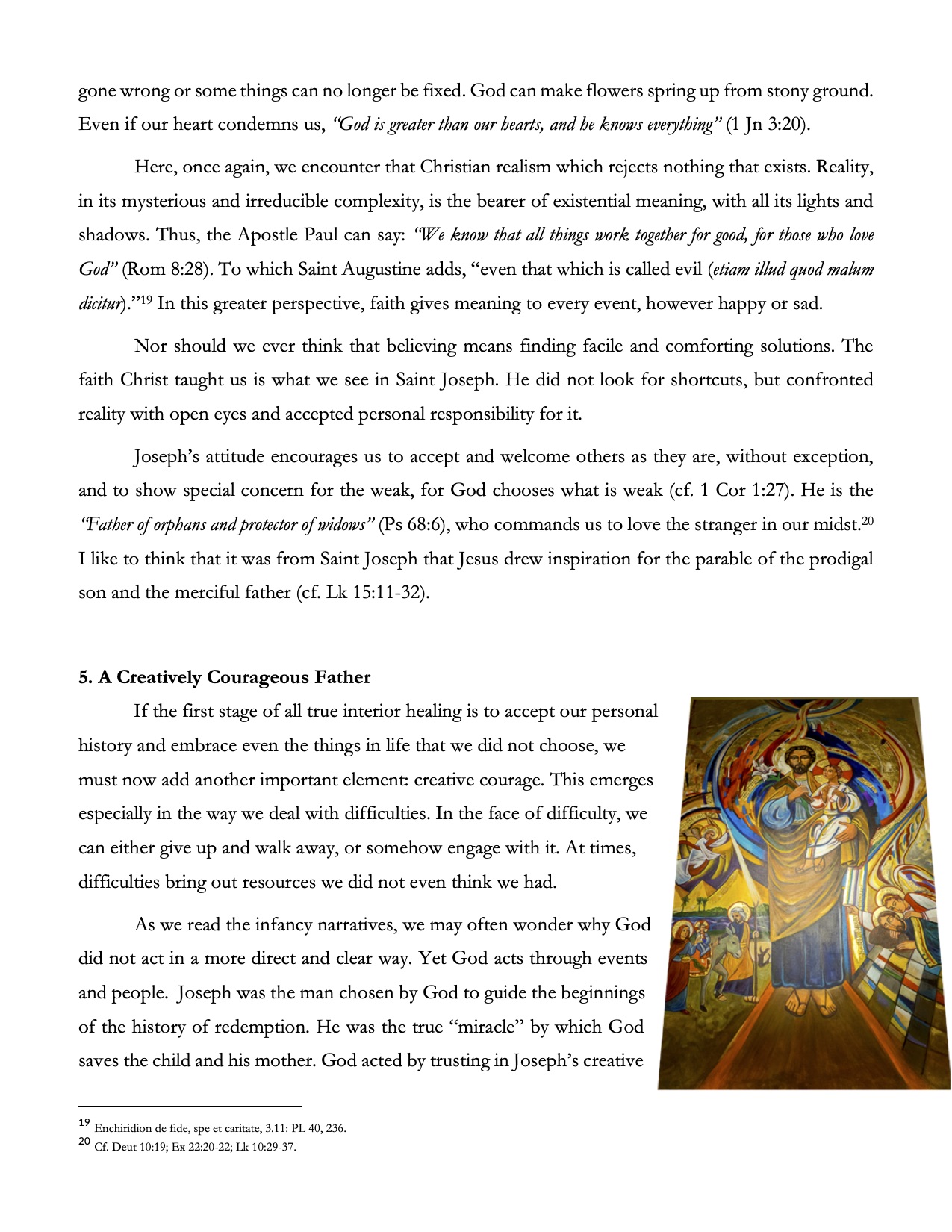
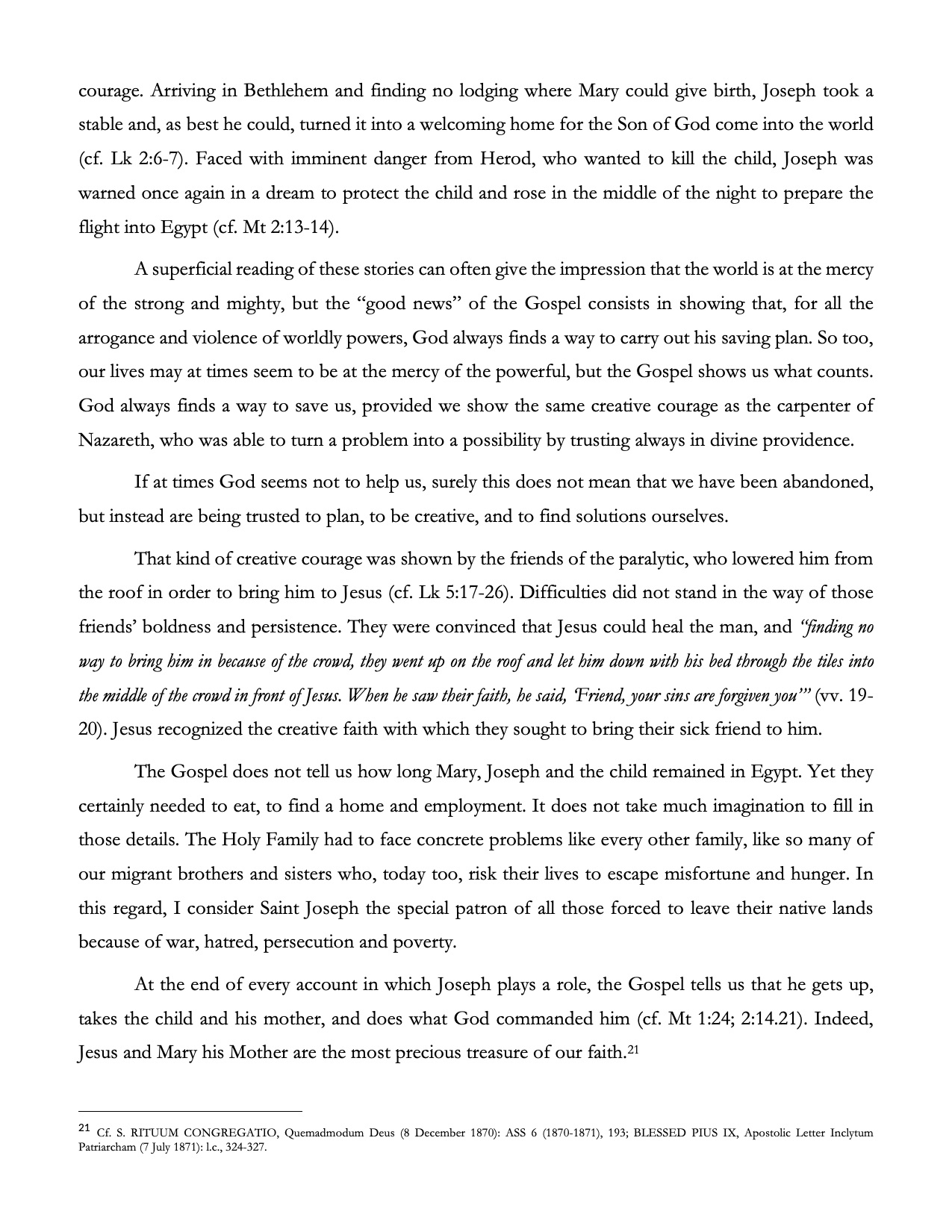
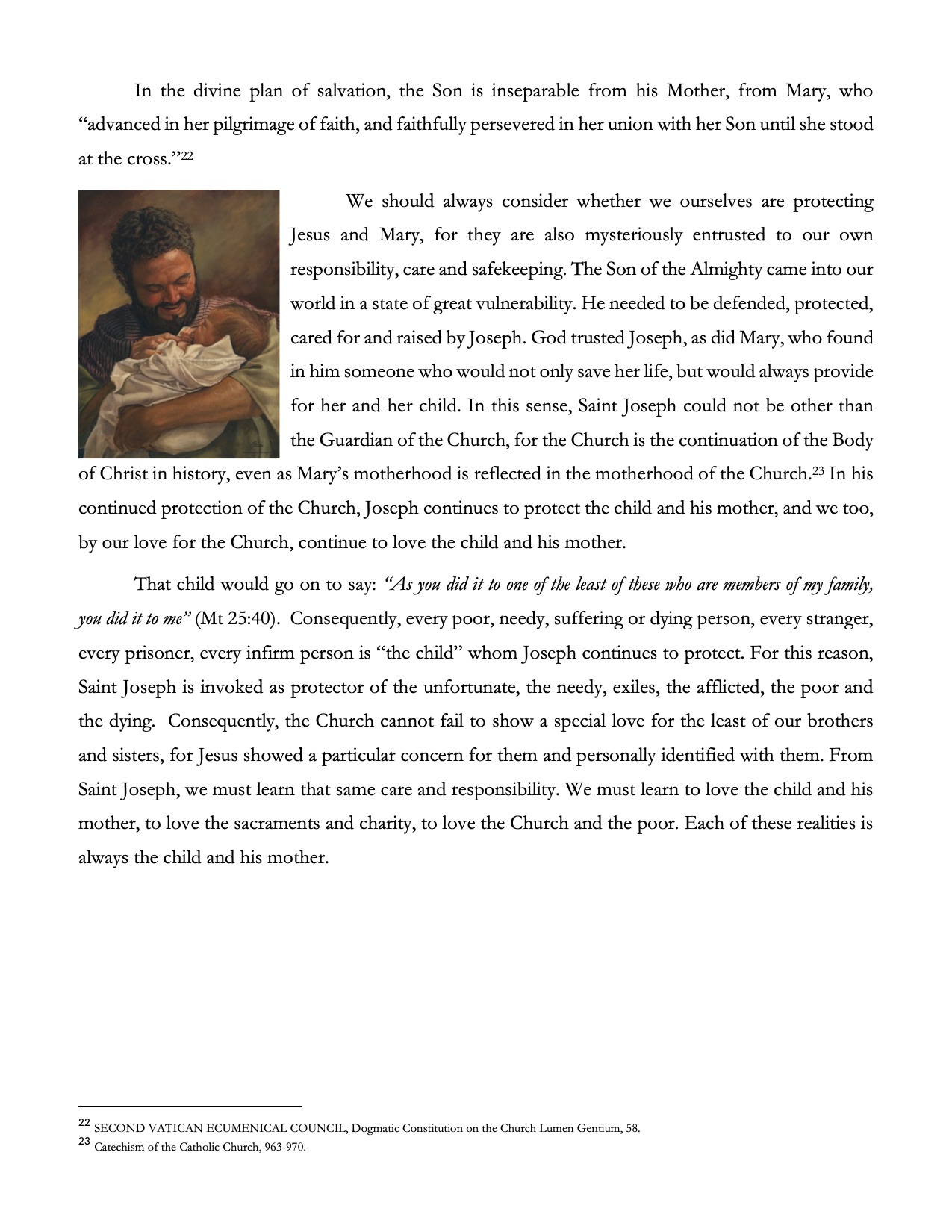
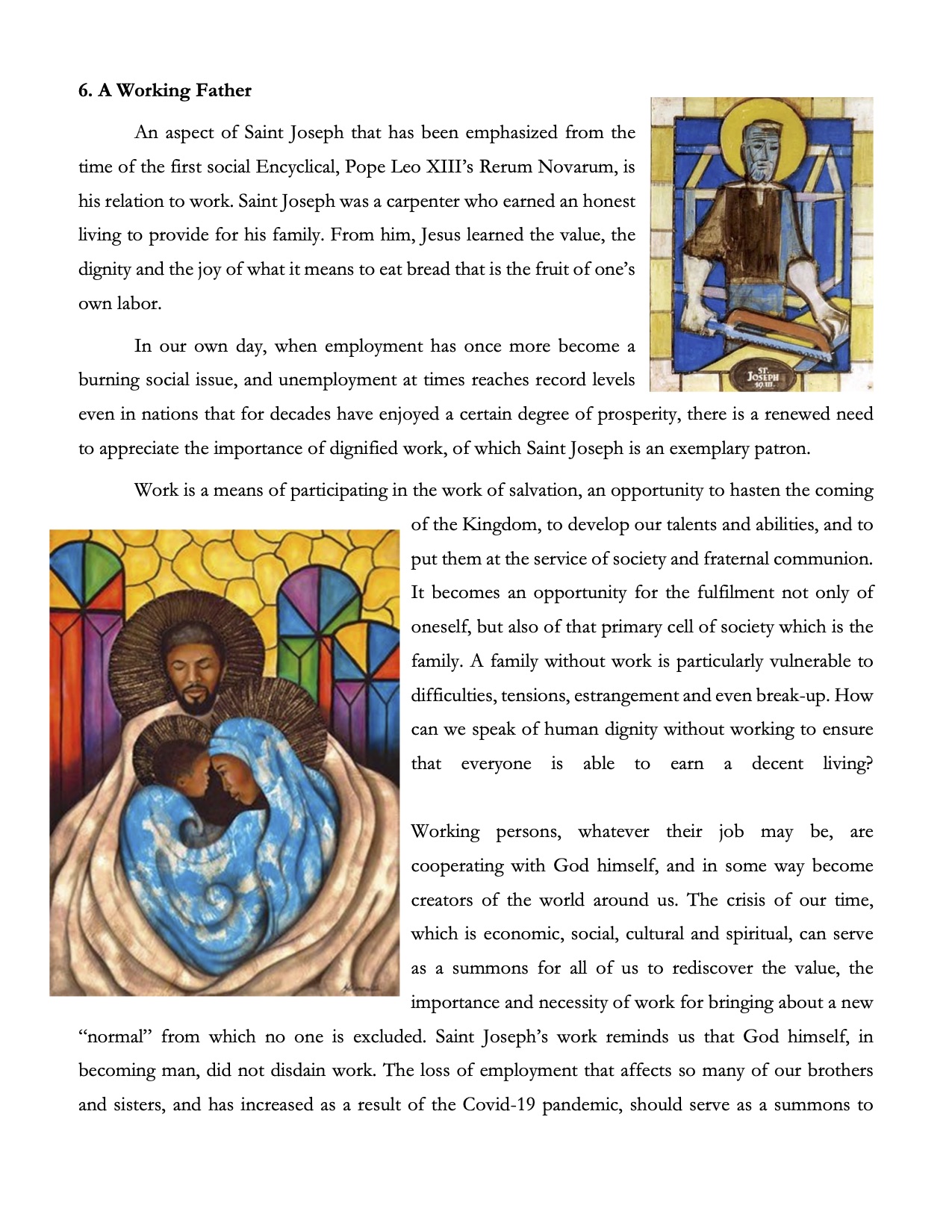
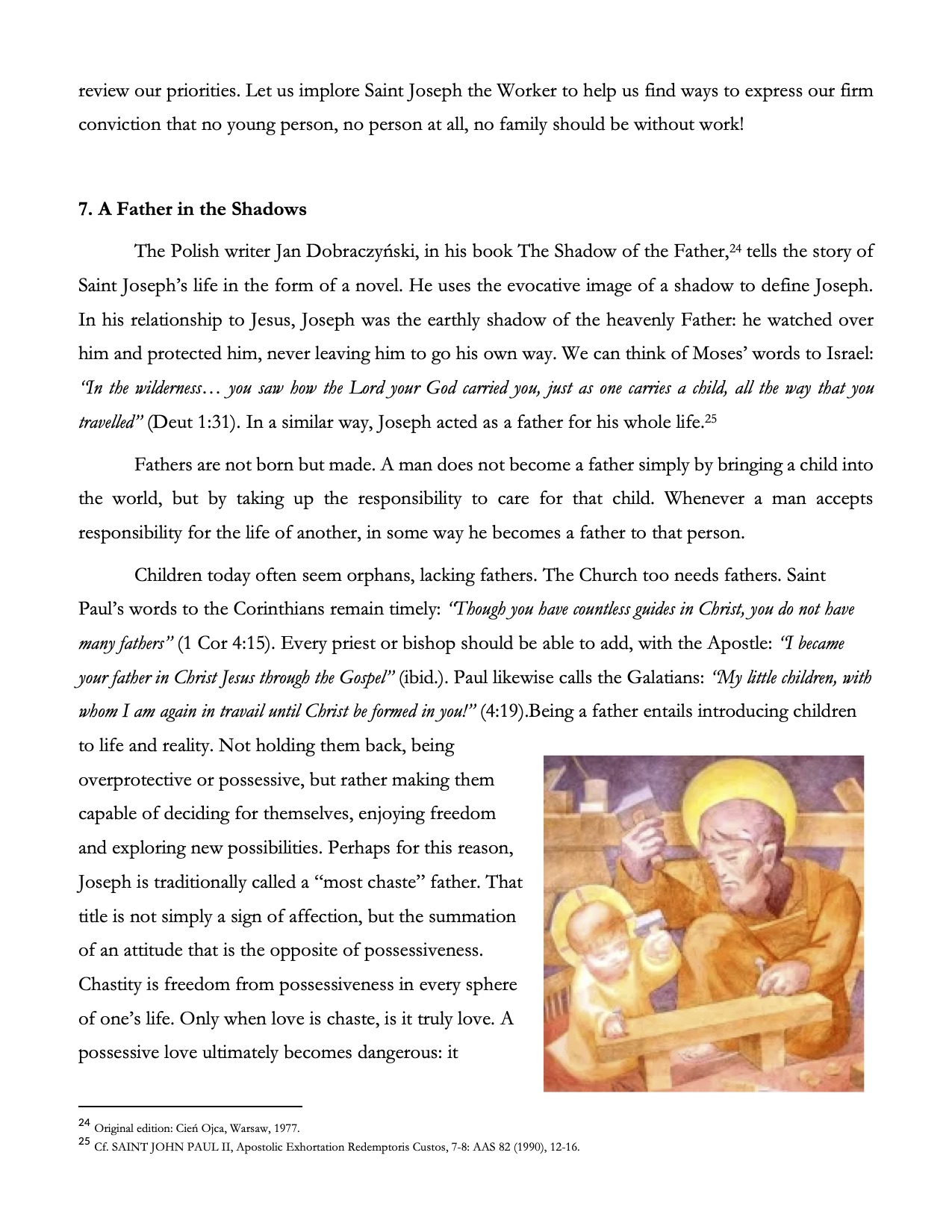
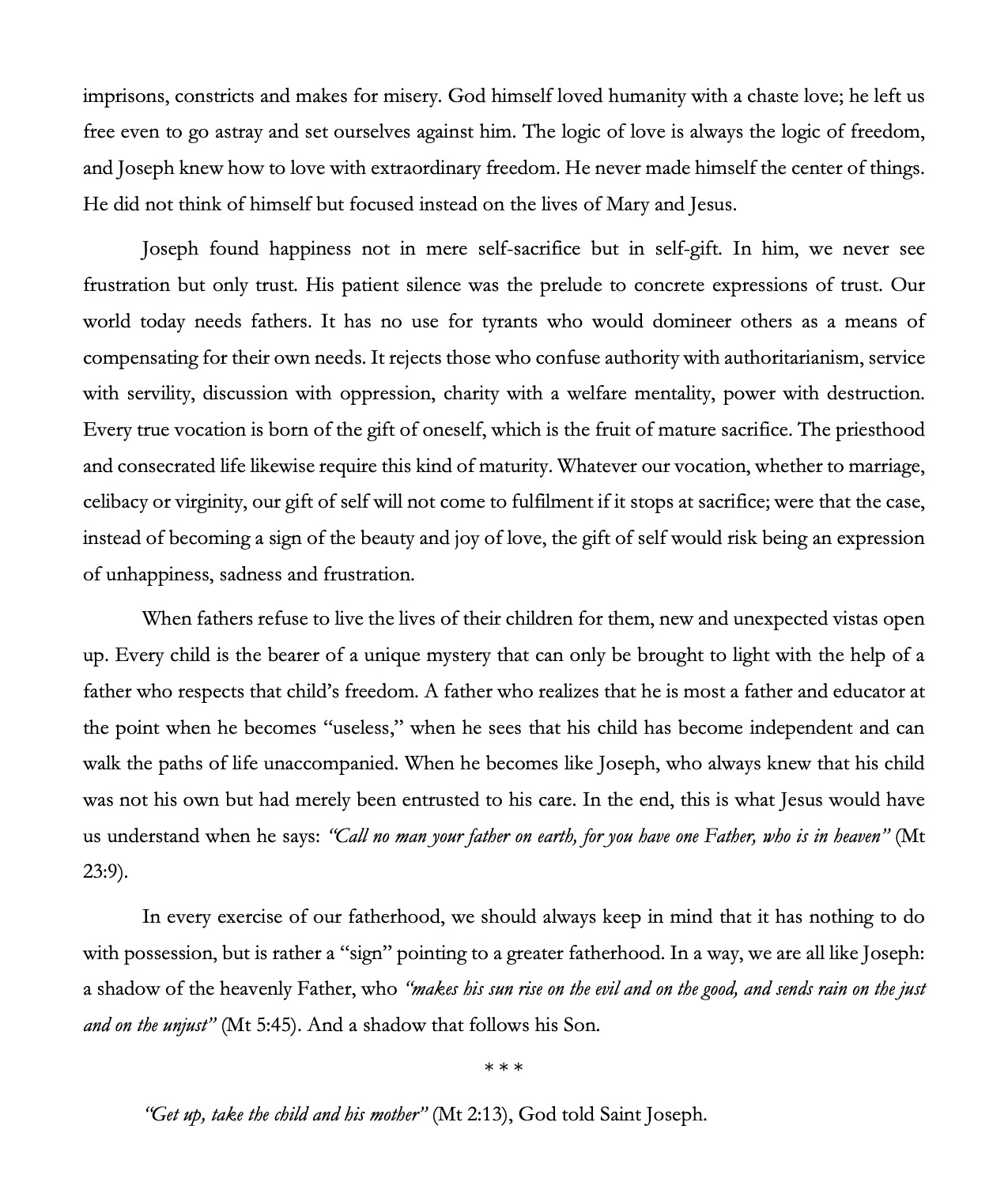
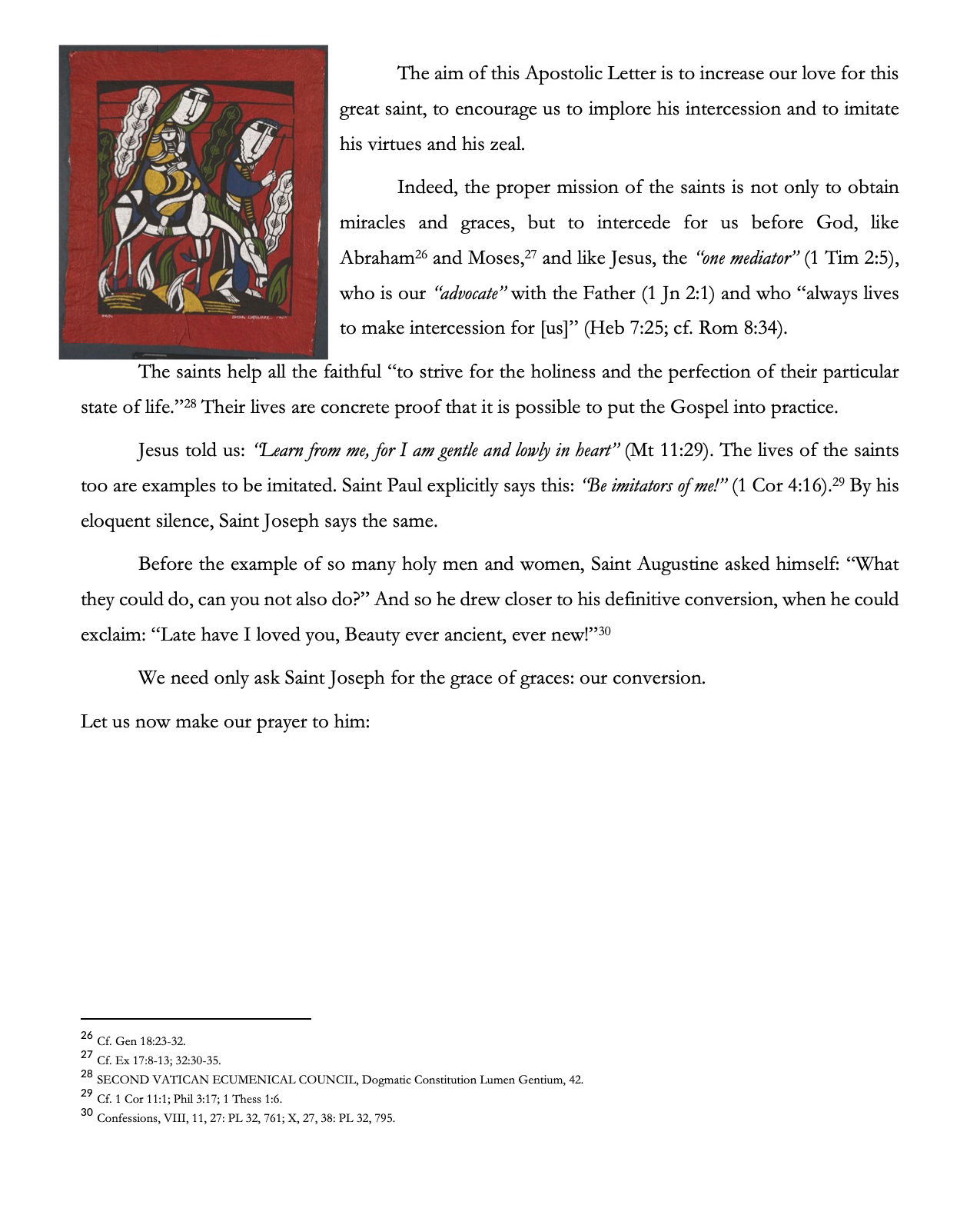
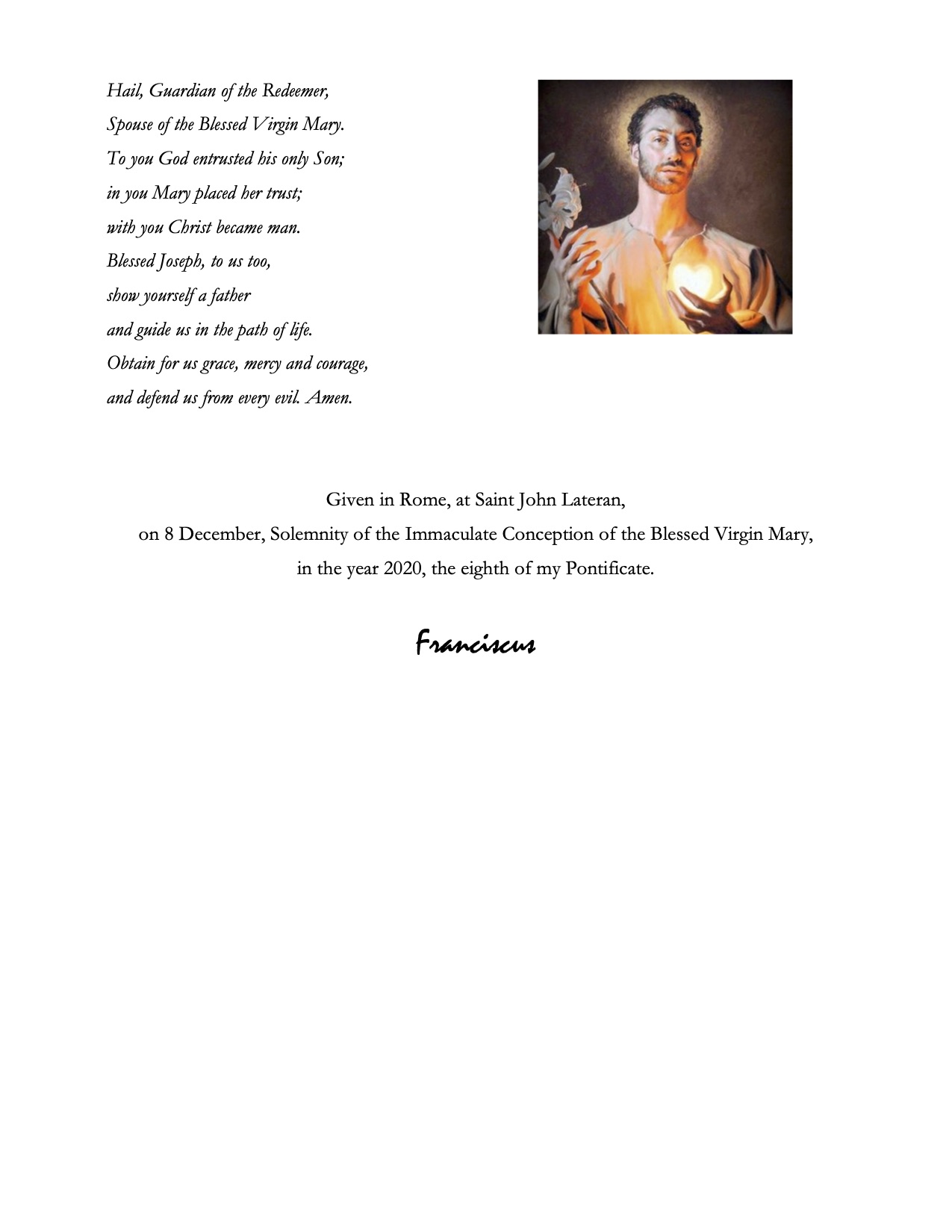
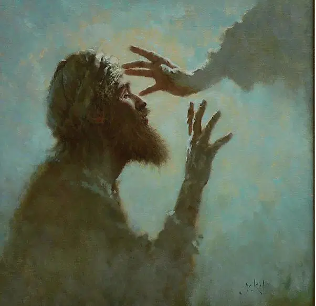
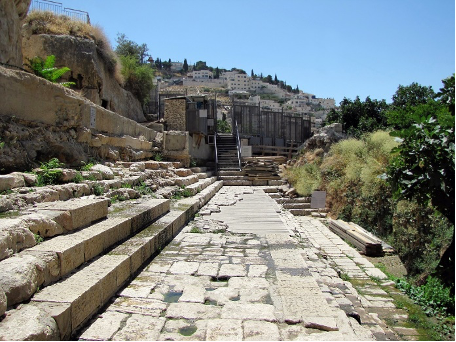

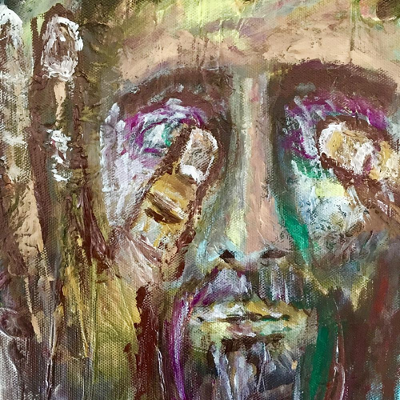 The seeing man who had been blind is questioned and the Pharisees immediately seek to reduce the event to something they can understand. They overlook the ability to see with questions about policy and procedure, about the Sabbath and the rules. The Pharisees are divided over what all of this means. The man is not cowed by their challenges nor swayed by their attempts to dismiss it. The man is expelled from the headquarters as nothing but a charlatan.
The seeing man who had been blind is questioned and the Pharisees immediately seek to reduce the event to something they can understand. They overlook the ability to see with questions about policy and procedure, about the Sabbath and the rules. The Pharisees are divided over what all of this means. The man is not cowed by their challenges nor swayed by their attempts to dismiss it. The man is expelled from the headquarters as nothing but a charlatan. Picture it: Pharisee Headquarters, Jerusalem 33 AD, a little while later. The Pharisees are divided over how the healing happened and what it means. God cannot work in ways outside of the law, yet this seems to be a work of God. The man’s parents have been subpoenaed and are being questioned.
Picture it: Pharisee Headquarters, Jerusalem 33 AD, a little while later. The Pharisees are divided over how the healing happened and what it means. God cannot work in ways outside of the law, yet this seems to be a work of God. The man’s parents have been subpoenaed and are being questioned. We talked on Ash Wednesday about WHY we pray. It is part of the tradition of Lent that Jesus Himself gave to us of prayer and fasting and almsgiving. More than simply telling us to pray, we learned that this season is about renewing our relationship with God, who seeks to be with us, to draw us close, to remind us of who God is and how God works: that EVEN NOW, no matter where we are or what we’ve done, no matter how distant we’ve become or how angry we feel, EVEN NOW, God seeks us out. God seeks us out to build and grow that friendship, recognizing each of us as a beloved daughter or son.
We talked on Ash Wednesday about WHY we pray. It is part of the tradition of Lent that Jesus Himself gave to us of prayer and fasting and almsgiving. More than simply telling us to pray, we learned that this season is about renewing our relationship with God, who seeks to be with us, to draw us close, to remind us of who God is and how God works: that EVEN NOW, no matter where we are or what we’ve done, no matter how distant we’ve become or how angry we feel, EVEN NOW, God seeks us out. God seeks us out to build and grow that friendship, recognizing each of us as a beloved daughter or son. doubt His willingness to suffer all that will come and remain faithful. The only way Jesus can fight these temptations is to maintain and strengthen His relationship with God. Prayer helps us to do that.
doubt His willingness to suffer all that will come and remain faithful. The only way Jesus can fight these temptations is to maintain and strengthen His relationship with God. Prayer helps us to do that. outstretched arm, the brilliance of God’s love all shining palpably through the humanity of Jesus. In this gift, even misunderstood, Peter comes to realize that It is good that we are here. This mountain-top moment when God’s Presence is undeniable is to strengthen Peter and James and John to face those times God seems distant or absent.
outstretched arm, the brilliance of God’s love all shining palpably through the humanity of Jesus. In this gift, even misunderstood, Peter comes to realize that It is good that we are here. This mountain-top moment when God’s Presence is undeniable is to strengthen Peter and James and John to face those times God seems distant or absent.  Jesus is on his way home from Judea to Galilee. Since the Jews (good ones at least) avoided Samaria, they would go far out of the way to go around Samaria, bypassing the whole region. Jesus takes the more direct route and passes through Samaria, not because He’s lazy but because, as we’ll see, He has a mission. Even still the trek home was a three day walk in the hot sun. John tells us in the Gospel that it is the sixth hour. If the first hour was at sunset, then the 6th hour was roughly around noon, lunchtime, and the hottest part of the day. Since it’s lunch time, Jesus and the Apostles stop for a break at Jacob’s Well. Jacob’s Well was a popular watering hole (get it?!) and locals came to get their daily supply of water and to see their friends and catch up on the town gossip. The Apostles leave Jesus to go get some food. Unusual that they all go, but Jesus has a plan. At noon, the well was pretty much devoid of activity; most got their water earlier in the day or later in the evening, when it was cooler, avoiding the high heat and the penetrating sun. Thus, Jesus comes to be sitting alone at the well at the sixth hour. But he is not alone for long.
Jesus is on his way home from Judea to Galilee. Since the Jews (good ones at least) avoided Samaria, they would go far out of the way to go around Samaria, bypassing the whole region. Jesus takes the more direct route and passes through Samaria, not because He’s lazy but because, as we’ll see, He has a mission. Even still the trek home was a three day walk in the hot sun. John tells us in the Gospel that it is the sixth hour. If the first hour was at sunset, then the 6th hour was roughly around noon, lunchtime, and the hottest part of the day. Since it’s lunch time, Jesus and the Apostles stop for a break at Jacob’s Well. Jacob’s Well was a popular watering hole (get it?!) and locals came to get their daily supply of water and to see their friends and catch up on the town gossip. The Apostles leave Jesus to go get some food. Unusual that they all go, but Jesus has a plan. At noon, the well was pretty much devoid of activity; most got their water earlier in the day or later in the evening, when it was cooler, avoiding the high heat and the penetrating sun. Thus, Jesus comes to be sitting alone at the well at the sixth hour. But he is not alone for long. no one else will be there. She wants to slink in, get her water, and then slink back out, avoiding the locals and their harsh judgment. Even more devastating is that perhaps, she thinks they are right.
no one else will be there. She wants to slink in, get her water, and then slink back out, avoiding the locals and their harsh judgment. Even more devastating is that perhaps, she thinks they are right. Although somewhat stylized and brief, this back and forth represent that Jesus engages her, puts Himself in relationship with her, continues to answer questions and to draw her closer and more deeply into relationship with Him. He wants her to know Him and to trust Him, to know that He loves her even as she is known by Him. This is not some casual encounter, or some idle banter. Jesus is at work deepening bonds of friendship and love and trust that will allow God to work with her, for her, and then THROUGH her for others. Only when Jesus has established a relationship with, only once He has her trust, only once she knows of His care for her does he delve daintily into what was most likely in the forefront of her mind with Jesus and with anyone else she meets, what is certainly for the local yokels her defining element, her sinfulness.
Although somewhat stylized and brief, this back and forth represent that Jesus engages her, puts Himself in relationship with her, continues to answer questions and to draw her closer and more deeply into relationship with Him. He wants her to know Him and to trust Him, to know that He loves her even as she is known by Him. This is not some casual encounter, or some idle banter. Jesus is at work deepening bonds of friendship and love and trust that will allow God to work with her, for her, and then THROUGH her for others. Only when Jesus has established a relationship with, only once He has her trust, only once she knows of His care for her does he delve daintily into what was most likely in the forefront of her mind with Jesus and with anyone else she meets, what is certainly for the local yokels her defining element, her sinfulness. words that God loves and cares and has a plan that God comes to us, that we are not alone. Through His searching her out as she seeks to avoid everyone, through His engaging her when no one else would bother, through His challenges for her, through His address of her sins, through His forgiveness, Jesus has taught her how close God is, that to recognize Jesus as the Messiah is to worship in spirit and in truth. To worship in spirit and in truth, truly to recognize Jesus as the Messiah, is a life changing thing, accepting the truth of God’s love for us and allowing God’s Spirit of love to reign in our hearts and in our lives. And this is ultimately why Jesus comes to the woman and what Jesus does for her.
words that God loves and cares and has a plan that God comes to us, that we are not alone. Through His searching her out as she seeks to avoid everyone, through His engaging her when no one else would bother, through His challenges for her, through His address of her sins, through His forgiveness, Jesus has taught her how close God is, that to recognize Jesus as the Messiah is to worship in spirit and in truth. To worship in spirit and in truth, truly to recognize Jesus as the Messiah, is a life changing thing, accepting the truth of God’s love for us and allowing God’s Spirit of love to reign in our hearts and in our lives. And this is ultimately why Jesus comes to the woman and what Jesus does for her. Jesus is seeking you out and wants to come to you. All that you need to do is be available. All you have to do is be available, open, vulnerable. Easy but not necessarily comfortable, Good but not nice. We need to be passive before the Lord, allow space to encounter Christ. Spend time being passive before the Lord. But, if you are anything like me, it is difficult to be passive, and I find myself having to work very hard to set the stage of my mind and heart to be passive.
Jesus is seeking you out and wants to come to you. All that you need to do is be available. All you have to do is be available, open, vulnerable. Easy but not necessarily comfortable, Good but not nice. We need to be passive before the Lord, allow space to encounter Christ. Spend time being passive before the Lord. But, if you are anything like me, it is difficult to be passive, and I find myself having to work very hard to set the stage of my mind and heart to be passive. Jesus did not simply get the woman to stop sinning to make her an upstanding citizen. Jesus wants the same for you, even if you aren’t looking for it or don’t think it’s possible. In grace and with mercy Jesus wants you to know God’s goodness for all, of God’s delight in you. Jesus wants you to be healed and to help you recognize your own worth.
Jesus did not simply get the woman to stop sinning to make her an upstanding citizen. Jesus wants the same for you, even if you aren’t looking for it or don’t think it’s possible. In grace and with mercy Jesus wants you to know God’s goodness for all, of God’s delight in you. Jesus wants you to be healed and to help you recognize your own worth.  Remember that any time, all time you give to prayer is good, a gift to God. Don’t be stymied by distraction but keep remembering that Jesus comes TO YOU. Jesus seeks to engage YOU. Jesus wants to forgive YOUR SINS. Jesus teaches YOU. Jesus sends YOU OUT to share the good news of YOUR EXPERIENCE of God and God’s love FOR YOU. Be like the woman at the well, courageous and bold, simple and convincing in preaching Jesus Christ and the living water God seeks to give. You won’t be sorry. Rather, concentrate on offering something to God. Even now.
Remember that any time, all time you give to prayer is good, a gift to God. Don’t be stymied by distraction but keep remembering that Jesus comes TO YOU. Jesus seeks to engage YOU. Jesus wants to forgive YOUR SINS. Jesus teaches YOU. Jesus sends YOU OUT to share the good news of YOUR EXPERIENCE of God and God’s love FOR YOU. Be like the woman at the well, courageous and bold, simple and convincing in preaching Jesus Christ and the living water God seeks to give. You won’t be sorry. Rather, concentrate on offering something to God. Even now.